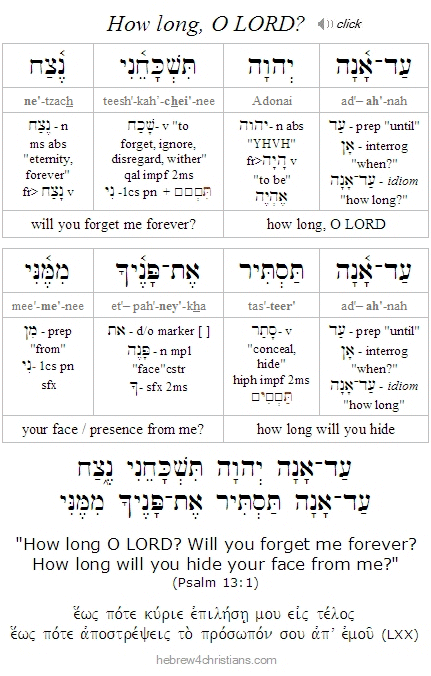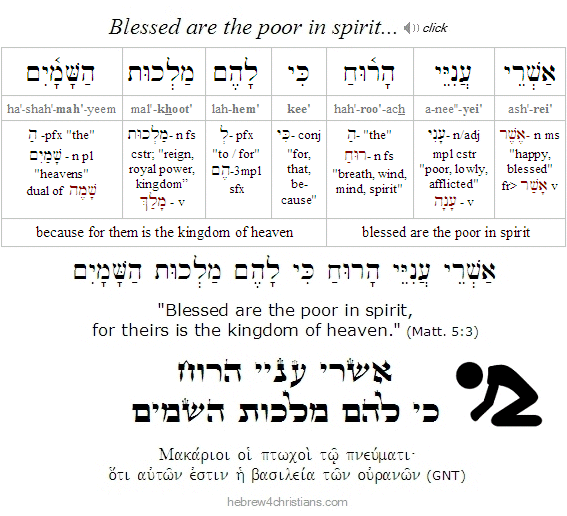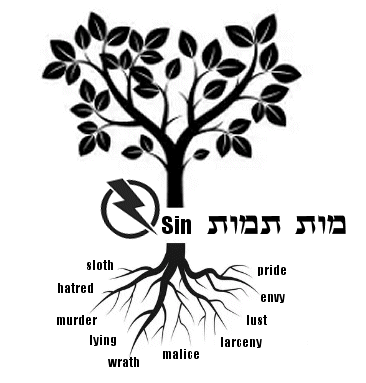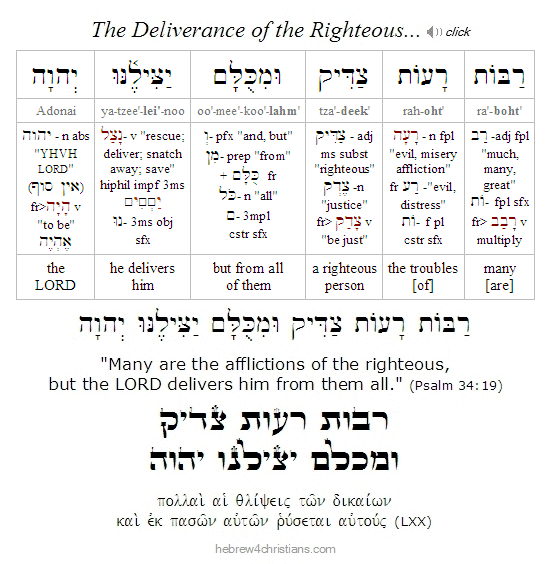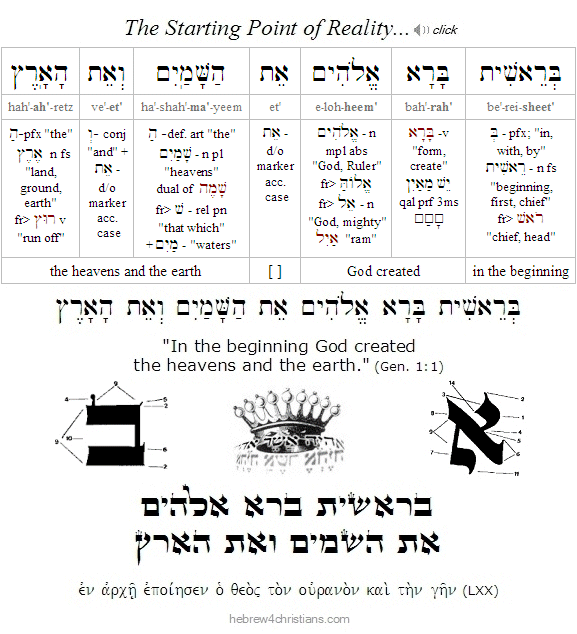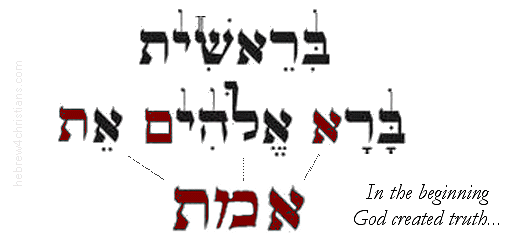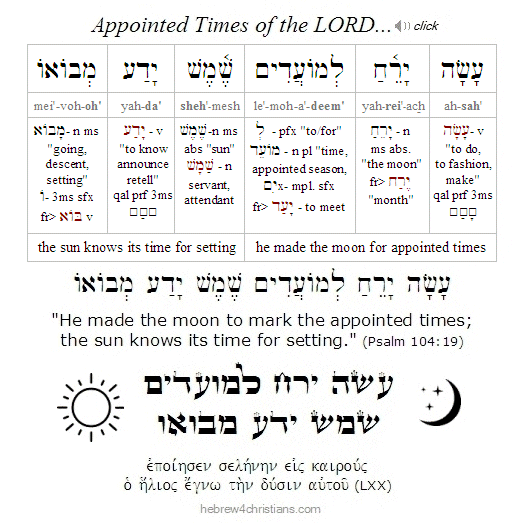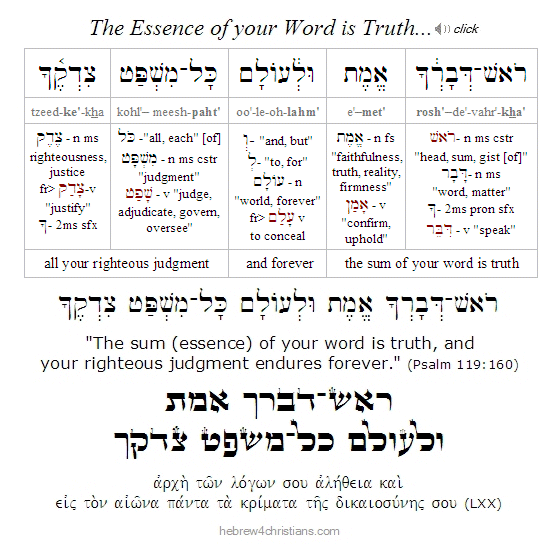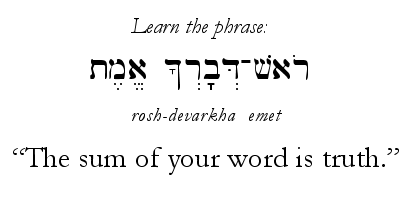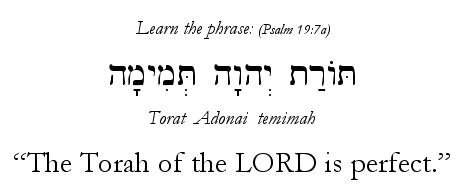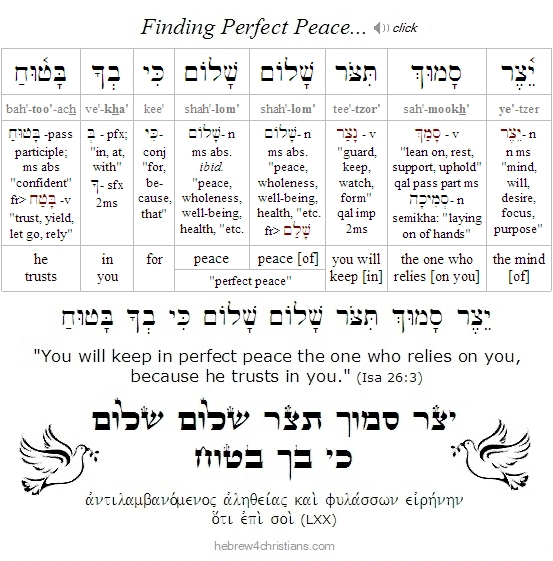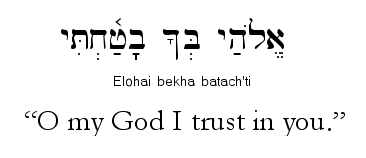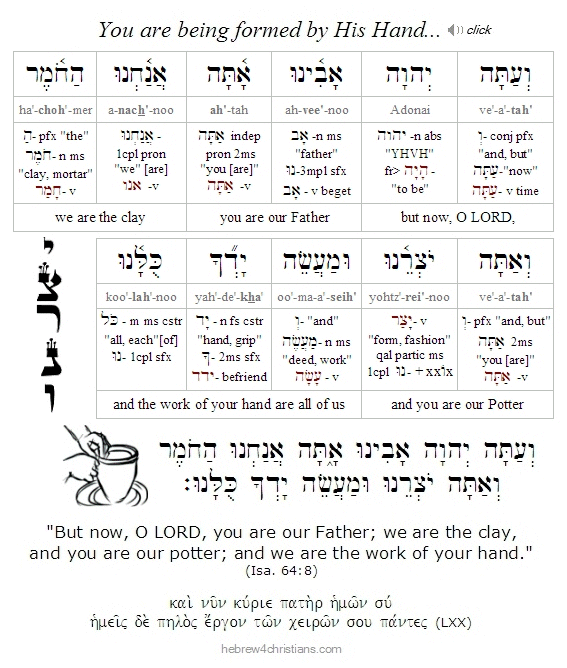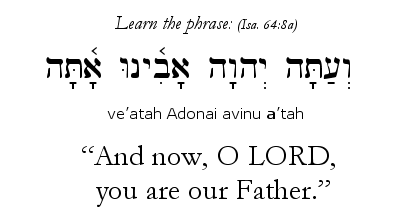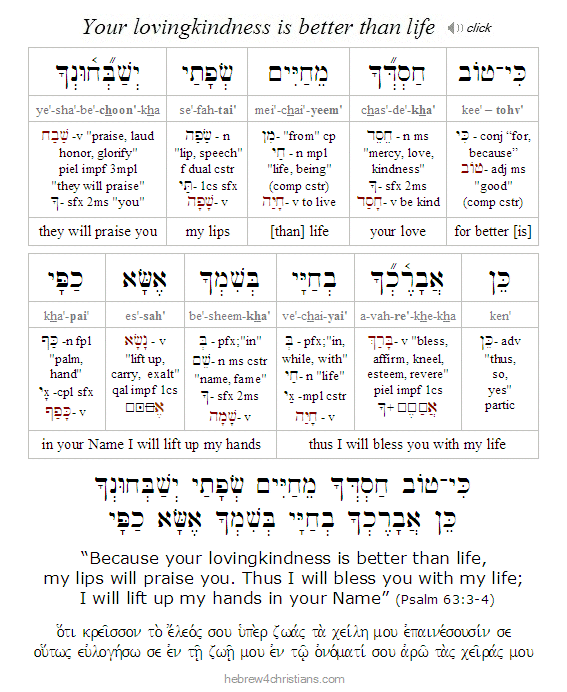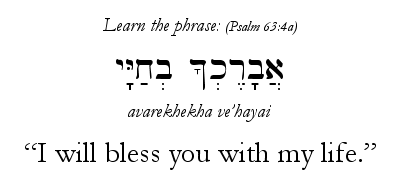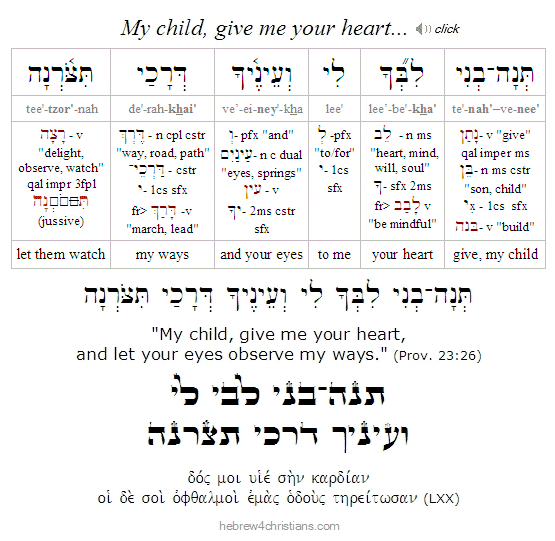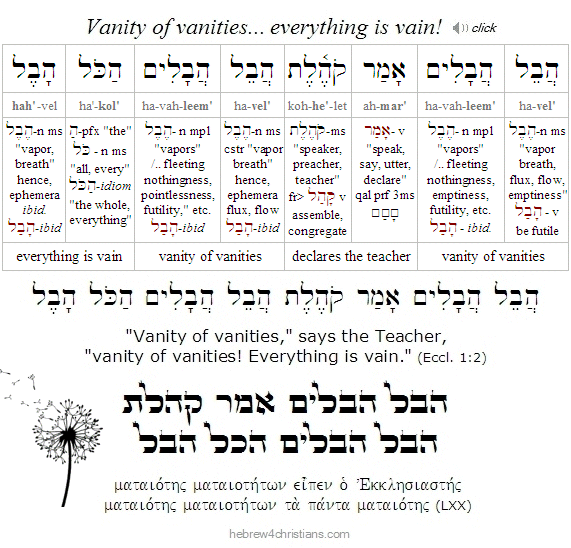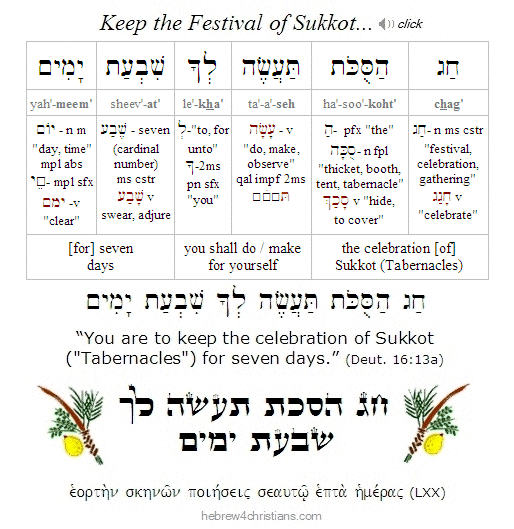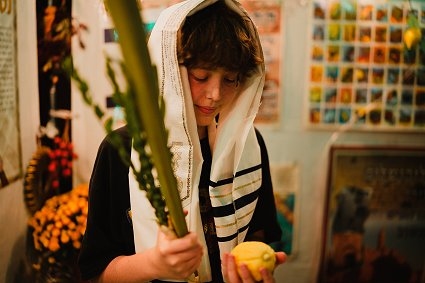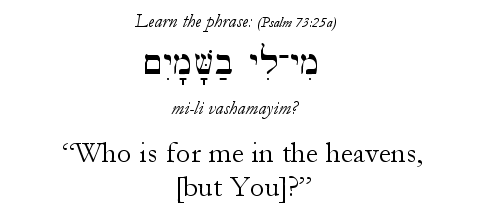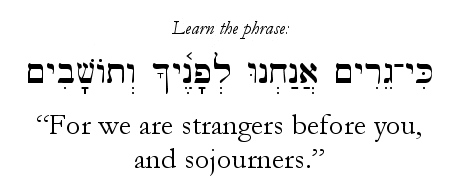|
October 2023 Updates (continued)
Note: Please refresh the page (or press F5) to see the latest updates...
Theology of Suffering...

[ This entry is also available on the H4C Substack page (click). ]
10.11.23 (Tishri 26, 5784) How we answer the question of why we suffer depends on how we interpret its meaning and its potential purpose in our lives. For example, an atheistic cosmologist might explain suffering in "mechanistic" terms, as a "brute fact" of life that has no intrinsic meaning or purpose. All that exists "naturally" comes into being and then disintegrates and dies. There is no reason for the existence of the cosmos and there is no discernible purpose in its random patterns and motions. There is therefore no answer to the deeper metaphysical question of "why is there something rather than nothing." Life is an "irrational given" and we must simply invent meaning and find the will to live until the inevitable end of life occurs.
People of faith, however, believe that a personal God created all things, including human beings, and therefore they regard such atheistic reductionism as simplistic and untrue to the lived experience and intuitions of spiritual reality. Life is regarded as a divine blessing be respected, and suffering and death are therefore regarded as tragic anomalies. Human conscience reveals transcendental moral truth and the consciousness of justice. The fact of suffering cries out for an explanation and therefore theological questions are raised for the heart of faith. For instance, does God sovereignly orchestrate suffering for our ultimate good, as part of his divine plan for our lives, or does God respond and intervene in our suffering, seeking to heal us from its influence? In other words, should we understand suffering as "inside" God's master plan for our lives, or somehow "outside" of that plan?
Such questions are surely not academic, since genuine suffering threatens our basic need to understand what is happening to us (and why), and therefore our heart cries out for a reason for our loss and pain. Indeed seemingly pointless suffering can lead to bitterness, chronic depression, the loss of faith, and even suicide, so it is vital to attempt to understand its function in our lives and to find hope in our struggles. After all, without some reason for suffering, some "why" that we can use to navigate and interpret our struggle, we may begin to feel victimized, prisoners of an absurd and pain-riddled world...
Most people of faith in the Hebrew Scriptures infer that there is a divine purpose for everything (i.e., the "principle of sufficient reason") which is grounded and determined in God's sovereign will. God is the Supreme Power who orchestrates history and its redemption according to a divine plan. The Lamb was slain from the "foundation of the world." The Lord is Ribbono Shel Olam, the "Master of the Universe," who directs all things after the counsel of his own will and in accordance with his sovereign good pleasure (see Isa. 40:13; Eph. 1:3-12; Rom. 8:28). This understanding implies that suffering is "inside" God's plan, not something "outside" of it, since by allowing suffering God in effect decrees its occurrence. Whatever touches our lives is bound up in God's overarching plan for creation, and since God is perfectly good, we can trust his plan for us, even if we suffer in this life (Jer. 29:11).
This exegetical approach to the question of why we suffer flows from various Biblical premises that God our Creator is infinite in power, wisdom, and love. Surely God can do anything he desires, and whatever He chooses is the best, which implies that this is the "best of all possible worlds," and - mystically accepted -- that everything is perfect -- even if we cannot fathom the deep purposes behind God's decrees (Isa. 55:8-9). Nothing is impossible for God (Luke 1:37); God never makes mistakes; God is not unaware, asleep, or unable to intervene in our lives. Indeed, God's power sustains the world at every moment, from the realm of the subatomic to the realm of cosmic (Heb. 1:3; Col. 1:16-17). And since God is supremely loving, compassionate, and perfectly good, we can trust his plan and feel secure that "all is well, and all manner of thing shall be well," even when we are in darkness (Isa. 50:10).
Perhaps the biggest objection to this optimistic view has to do with what appears to be "gratuitous" evil, such as senseless murders, "horrendous" evils such as wars of aggression and genocide, and "natural" evils such as earthquakes, tsunamis, hurricanes, and so on. It is difficult to fit such tragedies into a "perfect world scenario," and human outrage instinctively seeks for an alternative explanation. For instance, wouldn't the universe be better -- all other things being equal -- if just one child was not murdered rather than murdered? In other words, to successfully object to the idea that this is "the best of all possible worlds," we need to find only one logically possible counterexample which in turn would cast doubt upon the meaning of the original premises.... Put another way, are we prepared to say that it is necessary for God's perfect plan that every actual evil occurs, or can we say that it is at least possible that a world without one of these evils would be better than a world with it?
A different approach to the problem of why we suffer begins by rejecting the idea that suffering is "inside" God's plan, but instead should be regarded as "outside," as an alien force resulting from disobedience to God's moral will. Suffering is not an essential part of God's plan, but a derived part, a corollary to disobedience. Indeed, God's ultimate plan is to remove our suffering by means of our free response to his healing love. God "restricts" himself (tzimtzum) or "empties" himself (κενόω) to allow creatures some measure of real choice. Sin is the abuse of freedom for which God cannot be held responsible, and therefore suffering arises as a consequence for turning away from the reality of God's good will.
The appeal of this view is that it seems to make sense of the common "language of imperative" found in the Scriptures. Over and over we are commanded to love God, to love others as ourselves, to pursue justice, to walk in mercy, to do righteousness, and so on. We have a duty to serve God and follow the truth. "Ought implies can," and therefore the commands of Scripture imply that it is our responsibility to choose what is right and good, and to refrain from doing what is wrong and evil. In other words, it is up to us to turn to God and walk in his ways, and it's our failure to yield our will to God's direction (Torah) that leads to delusional thinking, and finally to suffering, pain, and death itself...
The "free will defense" (of God's goodness despite the presence of evil) as it's sometimes called, is not without complications, however. For instance, if we say that God cannot cause free moral agents to do what is right, and therefore that he must create them with the capability to choose evil, then this implies that God created the possibility for evil, and that when this possibility is considered in relation to God's foreknowledge, this further implies that God created moral agents knowing they would choose evil over good. However, if suffering is not "inside" God's plan, it is hard to understand why God wouldn't have created truly free moral agents who always choose the good in the first place. Certainly that is not a logical impossibility. Indeed, as Augustine said regarding the question of obedience and freedom, at first Adam and Eve were "able to sin" (posse peccare); but after they disobeyed God, they were infected with spiritual death and rendered "unable not to sin" (non posse non peccare). After regeneration through Yeshua, the soul is "able not to sin" (posse non peccare), though in heaven, finally, the soul will be "unable to sin" (non posse peccare), that is, free from the the possibility and presence of sin.
Let me explain this a bit further. According to Augustine, when God created man, he was in a state of "innocence" wherein he was entirely free to choose either to sin or not. After Adam sinned, however, death entered into the human race and the state of soul of all the descendants of Adam and Eve thereby became "unregenerated" (i.e., spiritually dead). Man's ability to choose was vitiated and he became enslaved to self-interest, driven by fear, and engulfed in spiritual darkness. His state of being as a "natural man" precluded him from apprehending the truth and living according to its light. After spiritual rebirth and "regeneration," however, the soul is "made alive" (ζωοποιεω) by the Holy Spirit and made free from the "law of sin and death," i.e., the power of sin. This does not mean, however, that the regenerated soul is able to attain a state of moral perfection and entirely cease from sinning, since the process of sanctification involves apprehending the soul's new identity through the ongoing practice of faith. Finally, the state of soul in olam haba -- the world to come -- is one wherein the soul is "glorified" and accorded the power both not to sin and the everlasting grace to be unable to sin against God. This is the heavenly state - the Holy Mountain - where the very presence of sin will forever be eradicated. If God will orchestrate such and end, why could he not have done so from the beginning?
A troubling implication of the classical "free will" defense, however, is that the possibility for doing evil seems necessary to be a free moral agent, which seems to suggest that evil is eternal... Like the (dubious) logic that claims we cannot know light apart from darkness, love apart from hate, and peace apart from strife, etc., so we will need these contradistinctions forever. But it seems contrary to the promise of Scripture that God will wipe every every tear from our eyes in the world to come, yet the language of pain will be known as well...
Hebrew Lesson
Psalm 13:1 Hebrew reading:
The "free will defense of God" is popular because it permits us to feel outrage over suffering and evil without blaming God. Suffering is not something God intended for us (it is "outside" his plan), and therefore we must fight against it. Nevertheless we can make a distinction between evil and suffering, and though we agree that God does not will us evil, he may indeed will that we suffer, if that suffering "upbuilds the soul" or transforms our character to reveal the truth of Christ. The Chasidic School has said, "Man descends in order to ascend," meaning that the battle with yetzer hara (the "lower nature") is meant to strengthen us and develop qualities that we could otherwise not know. The Chassidic masters must have read Kierkegaard, who called suffering the process of being "educated for eternity." This world of shadows and decay is not our true home, and suffering is God's way of calling us away from the allure of its illusions. We only become a person, a self, in relationship with eternity, and suffering turns the soul's gaze away from the fleeting to the truth that unifies and heals us. As C.S. Lewis said, "God whispers to us in our pleasures, speaks in our conscience, but shouts in our pains: it is His megaphone to rouse a deaf world."
Marcel Proust once said, "To wisdom and goodness we make only promises; pain we obey," which I interpret to mean that suffering can teach us and help us develop into mature people. God "purges" the vine branches; he cuts back and reshapes our growth and direction (John 15:1-8). Our suffering builds endurance and strength, and unites us deeply with God's heart, with the goal of being glorified with Yeshua (Rom. 8:17). Suffering teaches us empathy, compassion, and humility, and God comforts us in our afflictions so that we can comfort others with the comfort we have been given by God (2 Cor. 1:3-4).
God graciously "delivers our soul from death, our eyes from tears, and our feet from stumbling" (Psalm 116:8) so that we are enabled to express his compassionate love to others in our lives... "For as we share abundantly in Messiah's sufferings, so we share abundantly in consolation (παράκλησις) of the Messiah, too" (1 Cor. 1:5). Therefore we can say, "Blessed be the God and Father of our Lord Yeshua the Messiah, the Father of mercies and God of all comfort (אלהֵי כָּל־נֶחָמָה), who comforts us in all our affliction, so that we may be able to comfort those who are in any affliction, with the comfort with which we ourselves are comforted by God" (2 Cor. 1:3-4). Note that Paul links our present suffering (πάθος, pathos) with a divinely imparted comfort (παράκλησις, "paraklesis"), which he regards as a state of blessedness. God Himself "calls us to His side" (from παρά + καλέω) in the midst of our afflictions and pain.... The Greek text reads, ὁ παρακαλῶν ἡμᾶς ἐπὶ πάσῃ τῇ θλίψει ἡμῶν, and might be better rendered as, "The one calling to us [to His side] in all our tribulations" (2 Cor. 1:4). God invites us to come to His side for comfort so that we might offer his comfort to a lost and pain-riddled world.
In this view, suffering is "inside" God's plan as a means of ultimately healing us. Indeed, far from being a sign of God's abandonment, suffering is transformed to be a means of God's care for us. We are disciplined by God to bear a greater good (Heb. 12:7-11); we learn to endure trials for the sake of knowing and sharing the miracle of God's comforting love.
There are some other attempts to put suffering "outside" of God's plan that might be mentioned here. Some people regard life in this world as a cosmic battlefield and blame the devil for all the suffering and evil we experience. The proper response is not to blame God but rather to join Him in the battle of the ages against evil.
The traditional "problem of evil" may be stated that the three sentences: 1) God is all good; 2) God is all powerful; and 3) evil exists, are incompatible, if not logically, then at least existentially. The empirical philosopher David Hume succinctly put the problem this way: "Is He willing to prevent evil, but not able? Then He is impotent. Is He able, but not willing? Then He is malevolent. Is He both able and willing? Whence then is evil?" (Dialogues Concerning Natural Religion). In other words, if God is all good he would want to eliminate evil, and if God is all powerful he is able to eliminate evil, and yet evil exists, so we are left with the choice of accepting any two of these statements at the expense of the third. For example, someone could affirm that God is all good and evil exists, but God is unable to overpower evil; or someone could say that God is both all good and all powerful, and therefore (ultimately speaking) evil does not exist, and so on. Some people attempt to make suffering "outside" of God's will by denying his omnipotence -- by claiming that God literally cannot overcome evil because he has given moral agents their own sovereign will to choose... God logically cannot remove evil just like he can't make a square circle or cause 2+2 to equal 5. Others say that God does not know the future because reality is a process, and not a set of facts, and God simply leaves room for personal choices that are not predetermined to occur.
It should be clear that these other approaches are contrary to the clear teaching of Scripture, since God is the God of Truth (אֵל אֱמֶת) who indeed knows the beginning from the end, and indeed God's understanding and power are infinite (Psalm 147:5; Isa. 40:28; Psalm 145:3; Rom. 11:33). God is perfect in all his ways (Deut. 32:4). The Judge of the earth shall always do what is right (Gen. 18:25). Moreover God is utterly holy, absolute in moral perfections, and his will is beyond reproach. Additionally, Yeshua knew the truth value of "counterfactual conditionals" (Matt. 11:21-23), so it is simply incorrect to suppose that God cannot foresee future possibilities as well as actualities. God knows the truth conditions of all possible worlds, just as God knows the outcome of all actualized possibilities in the actual world.
Among those of us who trust God and the words of our Lord Yeshua the Savior, however, we are faced with paradox, with mystery, and therefore we must learn to accept that we "see through a glass darkly" (1 Cor. 13:12). On the one hand we unreservedly believe that God is the sole Authority of reality, the Master of the universe who decrees and ordains all things perfectly. God knows the number of the hairs on our head; he knows our thoughts before we think them and our words before we utter them (Psalm 139); he knows the bloom of every hidden wildflower and when the sparrow falls (Matt. 10:29). Surely He is our Good Shepherd who leads us through the world and orders all things to work together for our good (Rom. 8:28). His promises are secure because God is in control, and indeed God's Name YHVH (יהוה) means that he is the Faithful One who reigns over all states of being and time, in every realm of existence. God is Eternal and therefore he is the Possessor of Eternal Life, Truth, Being, and so on. YHVH is Lord of lords and King of kings whose word can never fail (Deut. 10:17; Dan. 2:47). Ein od milvado (אֵין עוֹד מִלְבַדּו): "there is no power apart from Him" (Deut. 4:35,9). Because our great God is in control of our lives and future, he must ordain suffering for us with only benevolent and healing intent.
On the other hand, the imperatives of Scripture implies that we have a real duty and responsibility to do truth, to love others, to receive the light, to trust in God, and so on. Like the rich man who asked Yeshua how to inherit eternal life (Mark 10:17-22), God does not force us to follow him or to accept his love, though there are real consequences for those who willingly choose to disregard moral and spiritual reality. Nevertheless -- and this is the problem given in the Book of Job -- it is very often the righteous that suffer, while the wicked seemingly prosper, and it this breakdown of the principle of "karma" (i.e., moral cause and effect) that is most problematic, at least in a reciprocal or rational sense...
In the end the question of why creatures suffer may be an unanswerable question, at least at the present time, because we are not omniscient and cannot ascertain the deepest reaches of God's redemptive purposes. Nevertheless we presently groan and seek for answers, because suffering is a ubiquitous part of our experience (צַעַר בַּעֲלֵי חַיִּים), and it threatens our sense of God's care for our lives... The academic question of how to reconcile faith in God with the prevalence of suffering is very different than the life of faith itself, where we trust God's heart, even if we cannot understand why things happen the way they do. Like a small child, we take hold of our heavenly Father's hand, not knowing why he is leading us the way we are going, but trusting in his care every step of the way.
Every human being is a theologian of sorts, since thinking about what is ultimately real is inescapable, especially when we are confronted with questions regarding life and death.... The issue often isn't whether a person will believe in God, but rather how he or she will approach the question of God's Presence in light of suffering. Part of the difference between a "theology of rebellion" and a "theology of hope" is that rebellion is a mode of the intellectual (i.e., a deification of logic, a demand for temporal and this-worldly justice, and so on), whereas hope is a mode of personal trust (i.e., a "letting go" of the demand for answers in order to surrender to love). When you encounter God as the lover of your soul, you begin to apprehend the truth that "love is patient and kind; love does not envy or boast; it is not arrogant or rude; it does not insist on its own way; it is not irritable or resentful; it does not rejoice at wrongdoing, but rejoices with the truth" (1 Cor. 13:4-6). Being in a genuine love-relationship with God gives you the courage to face the ambiguity of a world filled with suffering with hope and compassion.
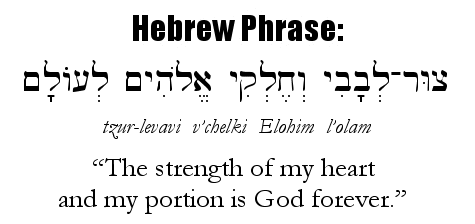 |
 |
The War for Truth...
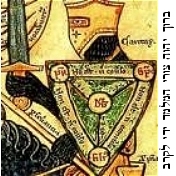
[ The following is related to our Torah reading for this week, parashat Bereshit... ]
10.10.23 (Tishri 25, 5784) We are in the midst of a great spiritual war -- the war for the truth. This has been the battle from the beginning. The very first words of evil (הַנָּחָשׁ) questioned and garbled God's truth: אַף כִּי־אָמַר אֱלֹהִים לֹא תֹאכְלוּ מִכֹּל עֵץ הַגָּן - "Did God really say you shall not eat from all the trees of the garden?" (Gen. 3:1). The test of the orchard was therefore the test of teshuvah - that is, whether Adam and Eve would turn to God or turn to evil. Satan's deceptive appeal to Eve was that the fruit of the Tree of Knowledge would give her wisdom that would make her "like God," knowing both good and evil. The essence of temptation focused on her pride and her desire to acquire wisdom using her own autonomous reasoning. The fruit represented self-will and the abandonment of God's rule as King of the universe. Eve's sin was ultimately that of unbelief (which is the reason why we must be saved by faith, as a reversal of the original sin). When she ate the forbidden fruit, the body (carnality) became the central focus and shame was the result.
The Hebrew word for truth (i.e., emet: אֱמֶת) implies more that descriptive correspondence to include faithfulness and trust; it is both cognitive (emunah) and emotive (bittachon). In the end there will be found two types of people: those who love the truth and those who love the lie; these are children of light (בְּנֵי הָאוֹר) and children of darkness (בְּנֵי הַחשֶׁךְ), respectively. Followers of Yeshua the Messiah are told to "walk as children of light" / ὡς τέκνα φωτὸς περιπατεῖτε (Eph. 5:8). Children of light are called to be am kadosh - a holy people - separate from the evil engendered by the fallen world and its forces, just as the very first creative expression of God was the separation of light from darkness (Gen. 1:3-4). The children of light "hate evil and love the good," and conversely, the children of darkness "hate the good and love evil" (Psalm 34:21, Prov. 8:13, Amos 5:15, John 3:20-21). Yes, we hate sin, because sin separates people from healing; we hate sin but we love others. We are to walk in the peace and love of God; to do acts of justice and lovingkindness (Psalm 97:10). "No one can serve two masters, for either he will hate the one and love the other, or he will be devoted to the one and despise the other."
In a sense, the history of humanity - especially as it has been expressed philosophically and politically through the centuries -- has been nothing less than the collusion to redefine reality as something that it isn't. "The kings of the earth station themselves, and the dignitaries (רוֹזְנִים) take counsel together against (lit. "over") the LORD and His Mashiach" (Psalm 2:1-3). Spiritual warfare is therefore the fight for sanity and truth in a world that prefers madness and self-deception...
Be vigilant! If the devil can't kill you, he will try to drive you insane... He will lie to you about who you really are... He he will harass you and vex your soul. He will whisper fearful things in your ear... He will make what is small seem big and what is big seem small. He will raise dark suspicion within your soul, causing you to walk in mistrust. He will remind you of your sins to make you feel ashamed and dirty. He will hiss that you are unlovable and unworthy. He will argue on behalf of your flesh that you deserve better than this... He will tempt you to seek relief in cisterns of emptiness and futility. Most of all, he will try to cast a spell to make you forget that you are truly a prince or princess of God Almighty... The devil seeks to drive you into the exile of loneliness and despair. Submit yourself to God and refuse to heed voices of fear or shame. Da lifnei mi attah omed: "Know before whom you stand!"
There are two basic approaches to "spiritual warfare." The first is to discern the presence of evil and then pray for God's intervention, deliverance, protection, and so on. The second is to use ayin tovah and focus on God instead - to "set your thoughts on things above" (Phil. 4:8). Whereas the former approach may at times seem necessary to dissipate encroaching darkness to find inner peace, the latter approach has the decided advantage of trusting in the Divine Presence that pervades and overrules all things (Psalm 16:8). When David was surrounded by the enemy, he kept focused on the glory of the LORD. David knew that God would shelter him and elevate him above the powers of darkness (Psalm 27:1-6). The highest form of spiritual warfare, then, is to consciously turn away from fear by choosing to praise the LORD God, magnifying His Name, and walking before Him in awe...
Hebrew Lesson
Psalm 27:1 reading (click for audio):
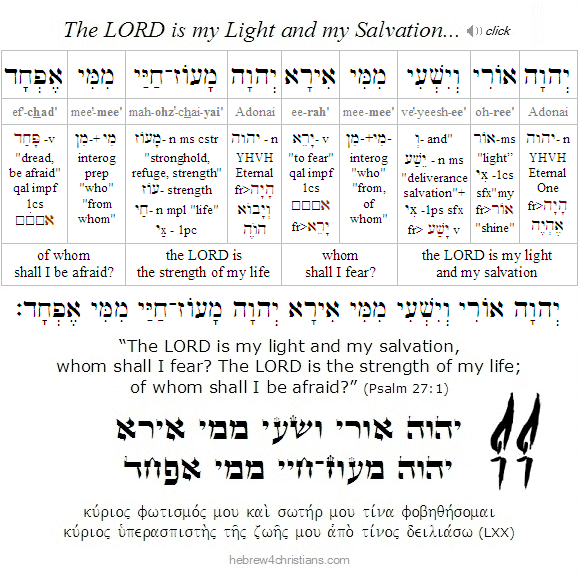
Surely our great need is to have heart, to find strength, resolution, and steadfast determination to walk boldly during these heartless and depraved days (2 Tim. 3:1-5). We are not without God's help, of course. Yeshua told us that the Ruach HaKodesh (רוּחַ הַקּדֶשׁ) would be "called alongside" (παράκλητος) to comfort us on the journey. The English verb "comfort" literally means "to give strength" (from com- ["with"] and fortis ["strong"]), an idea similarly expressed by the verb "encourage," that is, to "put heart [i.e., 'core'] within the soul." In Hebrew, the word courage is expressed by the phrase ometz lev (אמֶץ לֵב), meaning "strong of heart," denoting an inner quality of the will rather than of the intellect. Our faith is the victory that overcomes the world (1 John 4:4, 5:4).
Godless fear is the primary tool of the devil and the underlying motive behind sin itself (Rom. 14:23). Beloved, "do not be overcome by evil, but overcome evil with good" (Rom 12:21). Always focus on Yeshua, the Light of Torah (האור של תורה) and the true Wisdom of God (חָכְמַת אֱלהִים): "Whoever has My commandments (מִצְוֹתַי) and keeps them, that is the one who loves me. And the one who loves me will be loved by my Father, and I will love him and will manifest (lit., "shine within" from ἐν, "in" + φαίνω, "shine") myself to him" (John 14:21). There it is - the Source of the Light that overcomes all darkness; the Power that is behind the armor of God... Yeshua is the Beginning, the Center, and the End of all true meaning from God. Blessed is His Name forever and ever...
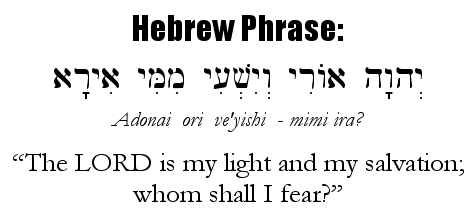 |
 |
The Dust of God....
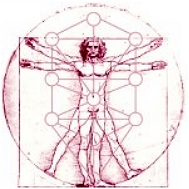
[ The following is related to last week's Torah portion, parashat Bereshit... ]
10.10.23 (Tishri 25, 5784) "Then the LORD God formed the man from dust of the ground and breathed into his nostrils the breath of life, and the man became a living soul" (Gen. 2:7). We tend to think of dust in self-effacing terms; for example, repenting in "dust and ashes" expresses unworthiness and sinfulness. Yet the dust God used to form Adam was not worthless, but instead represented very fine particles of creation, a substance suspended midway between heaven and earth, almost a "spiritual matter." This is suggested by the fact that God first intended man to be his image bearer and only then used dust as the material for that higher end.
The sages note that regarding the creation of animals, God said, "Let the earth (eretz) bring forth according to their kinds" (Gen. 1:24), but regarding man he said, "Let us make him be'tzelmeinu - in our image (as a photograph), after our likeness" (Gen. 1:26). Therefore God brought forth the lower animals in groups, but he created Adam as the only one of its kind, the son of God and prince of God's creation. God breathed into Adam nishmat chayim (נִשְׁמַת חַיִּים), "a living soul" (the word neshamah [נשָׁמָה] is used to describe life breathed into humans, not to animals). The LORD breathed "out of himself" to share his own spirit with mankind... Therefore your soul does not come from nature, but from God; your inner essence originates directly from the LORD...
Hebrew Lesson:
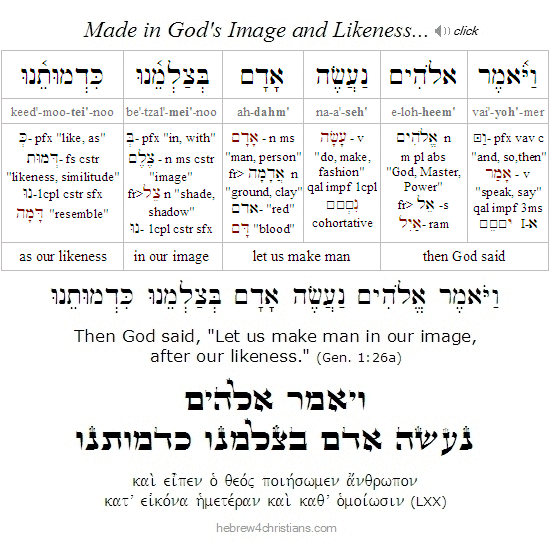 |
The Wages of Sin...

10.09.23 (Tishri 24, 5784) In our "postmodern" and narcissistic age the word "sin" no longer refers to selfish or malicious actions that violate the will of God, but has been redefined in psychological (or social) terms, usually as a form of "disorder" that imprisons people to self-defeating or "unhealthy" habits. Humanistically speaking, "forgiveness of sin" means "adjusting the person" to be free from any anxiety of divine judgment, with the therapeutic goal of enabling the soul to pursue personal happiness (or retribution) without regard to the moral law of God... Evil is no longer considered a viable category for understanding human behavior, and therefore humanism reduces the person to biochemical or genetic or "social" processes. Morality has been "medicalized," and if someone does something harmful to others, such murdering them, it is no longer a matter of personal responsibility but a more systemic problem that involves a complex constellation of causes that dissolves a person's responsibility for their actions. Sin "evil" doesn't exist, a terrorist or other sociopath, for example, is really considered a victim of forces beyond their control.
In the Scriptures, the most common Hebrew word for sin (i.e., chet: חֵטְא) is often translated as "missing the mark" (i.e., of the divine ideal) though that definition does not capture the intent of the person, that is, the decision (often subconsciously expressed) to aim at a mark contrary to what is good. Sinning, in other words, should not be regarded as passively "missing" the will of God, as if it were an "accident" of some sort, but rather as actively defying God's will by choosing a different goal altogether. In this sense sin may be understood as treason against truth, open rebellion against divine authority, the willful defiance of moral order, and the deification of the self as the object of ultimate concern... Sin is the expression of idolatry within the human heart. It is an inner perversity that defiantly refuses to forgive but clings to anger to excuse bringing its pain to others.
Rightly understood, then, sin is not an occasional "misstep" of the will, but an eternal falling away from the Eternal -- an ontological break from Reality and Truth. We are not sinners because we sin, we sin because we are sinners, and that means that we need deliverance – objective salvation and healing – from the root problem of "spiritual death" (i.e., mavet ruchani: מָוֶת רוּחָנִי). The first and necessary condition for receiving deliverance, then, is rigorous honesty, especially with ourselves: "The purest of heart is precisely the one most willing to comprehend his own guilt most deeply. Without purity of heart, no one can see God, and without becoming a sinner, no human being can come to know God" (Soren Kierkegaard). We must be careful here. This is not a matter of "morality" or "ethics" – that is, a failure to understand what is right, but instead constitutes an unwillingness to understand, a refusal to will the rightness of truth. That is why the original sin was rooted in an act of will, not in an act of knowing, since the essence of the temptation was expressed in the decision to define good and evil in merely human terms (Gen. 2:17).
The punishment for sin is "karet judgment," that is, spiritual excision or being cut off from the source of life. As it is written: "the soul that sins shall die" (Ezek. 18:4). The damage caused by sin cannot be overstated since it yields a lost inner condition of the soul that is spiritual or eternal death... The remedy to this tragic condition comes when our relationship with God is restored by means of the atonement of Messiah and the gift of a new life. We sometimes focus on our need to do teshuvah, though the Hebrew word means answering God's invitation to find life in him. God's passion given in Yeshua is the question of faith - whether you will receive the gift of righteousness or you will seek your own way to justify your existence... The prerequisite for receiving the blessing of life, however, is a sense of irremediable loss and brokenness - the conviction that you are separated from the divine life, that you are under karet judgment and disconnected from hope. The miracle occurs when you trust that healing and peace are given to you based on the personal intervention of the Savior on your behalf. "God made the one who did not know sin to be sin for you, so that in him you would become the righteousness of God" (2 Cor. 5:21). This great exchange, this substitutionary atonement, is the basis of the secret healing (חַיֵּי עוֹלָם) that issues from God to those of us who trust in Yeshua.
We can only find deliverance through the consciousness of our own willful sin and need for divine deliverance, and any attempt to enter by another way constitutes treason against the message of the cross of Messiah. This is the "terrible struggle" with the Eternal – with God and oneself – as we let go and die to the self-life; as we surrender and engage God's truth – which again is not found by mere intellectual assent, but by an act of will, by teshuvah, by faith, and by learning to find faith despite yourself along the way. The LORD "dwells" with one who is of a contrite and lowly spirit (Isa. 57:15), he "tabernacles" within the heart of the poor in spirit, with those who mourn over sin and who hunger and thirst for His righteousness....
Hebrew Lesson
Matthew 5:3 reading (click for audio):
Root of Sin and death...
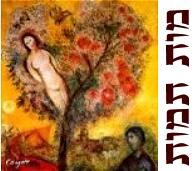
[ The following is related to our Torah reading for this week, parashat Bereshit... ]
10.09.23 (Tishri 24, 5784) The very first commandment prohibiting eating from the Tree of Knowledge of good and evil (עֵץ הַדַּעַת טוֹב וָרָע) contained all other Torah commandments by implication (Gen. 2:17). The commandments not to worship idols, not to curse God, not to steal, not to kill, not to commit adultery, not to covet, and to enforce justice all derive from this primary commandment given in the garden. After all, Adam lost awareness of God by focusing on himself (idolatry) and failed to express love and reverence for God (profanity); he took from the Tree what was forbidden (coveting/stealing) which led to his own death (killing) and his own inner promiscuity (adultery). He failed to be vigilant and exercise justice by removing the presence of the tempting snake...
Notice how these implications form the basic categories of the Ten Commandments, as well as the 613 commandments given later at Sinai. Looked at the other way, all of the commandments of Torah were concentrated into this single prohibition, since had Adam refrained from eating, he likewise would have refrained from all the other sins derived from this first great transgression. Moreover, since the essence of Torah is to trust God (i.e., "the righteous shall live by his faith"), when Adam sinned, he lost faith and the exile began... The Tree of Knowledge of good and evil is really the tree of the knowledge of sin and death. Just as the law defined sin to reveal our lethal spiritual condition, so the Tree of Knowledge led to the consequence of death and the revelation of our need for healing and deliverance given by Yeshua. "The law of the Spirit of life sets you free in Yeshua the Messiah from the law of sin and death" (Rom. 8:2).
The root of sin and death is found in the desire for "the knowledge of good and evil," that is, by defining the good in one's own terms. It is the attempt to transcend God's authority for something beyond his sovereign good for us, and as such it denies reality and leads to exile and death. In this connection we note that the Hebrew phrase that warns of the dreadful consequence of eating from the Tree is mot tamut (מוֹת תָּמוּת), meaning "in dying you will die," which both implies the spiritual nature of death as separation from the divine life, but also the repeated experience of death – an ongoing state decay, dissolution, and loss...
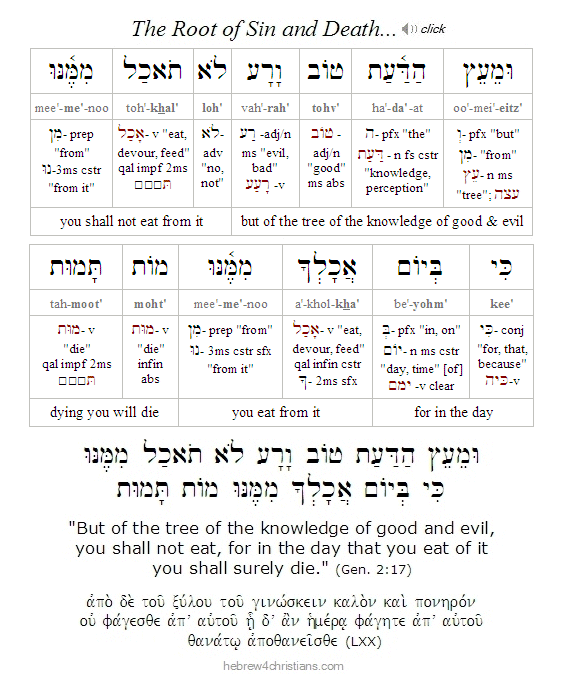 |
Endurance and Suffering...

10.09.23 (Tishri 24, 5784) "Pray that you may never have to endure all that you can learn to bear." Yes, though we must also believe that God "will not let us be tested beyond what we are able to bear, but with the test will also provide the way of escape (τὴν ἔκβασιν) so that we may be able to endure it" (1 Cor. 10:13). Indeed, in light of suffering what we really need is perseverance, or what the New Testament calls hupomone (ὑπομονή), a word that means "remaining [μένω] under [ὑπο]" the Divine Presence while being tested (the English word "suffer" comes from the Latin word sufferre, from sub- (under) + ferre, to carry, and therefore denotes "bearing under" difficulty). Suffering people often do not need moral platitudes or correction from others, but rather the will to believe, the strength to stay constant, and the rise of hope that gives life to simple prayers that focus the heart upon the Lord's Presence: "God have mercy..." "Help me, O God..." "I need Thee, O Lord..." When we receive grace to faithfully suffer, we hear the Spirit whispering back to us: "Be not afraid..." "Live in me..." "Walk in the light..." "I am with you always..." "You are loved..."
רַבּוֹת רָעוֹת צַדִּיק
וּמִכֻּלָּם יַצִּילֶנּוּ יְהוָה
ra·boht · rah·oht · tza·deek
oo·mee·koo-lahm · ya·tzee·le'·noo · Adonai

"Many are the afflictions of the righteous
but the LORD delivers him from them all." (Psalm 34:19)

Hebrew Lesson:
Psalm 34:19 Hebrew reading (click):
Life itself weans us from life as we learn that nothing ultimately belongs to us... We must learn to make peace with our sorrows and disappointments, to let go of them and to accept that this day, despite its frailty and trouble, is a precious gift from above. "My peace I give to you" (שלי שלום אני אתן לך), said Yeshua, "not as the world gives, I give to you" (John 14:27). Not as the world gives... When we let go, when we put everything in God's hands, we acknowledge that all we have is a gift from God. Amen.
Returning to the beginning:
Shabbat Bereshit...

[ The Sabbath that immediately follows Simchat Torah is called Shabbat Bereshit... ]
10.09.23 (Tishri 24, 5784) In Jewish tradition, the word "Bereshit" can refer to either the first Torah portion of the Bible (i.e., Gen. 1:1-6:8) or to the first book of the Torah itself. When it is used to refer to the Torah portion, it is called "parashat Bereshit" (פָּרָשַׁת בְּרֵאשִׁית) and the text covers the creation of the universe, including Adam and Eve, the subsequent transgression of Adam and Eve, the murder of Abel by humanity's firstborn son Cain, and the increasing depravity of the generations until the time of the calling of Noah. When it is used to refer to the book, however, it is called "sefer Bereshit" (סֵפֵר בְּרֵאשִׁית) or the "Book of Bereshit," and the text covers everything from the creation of the universe to the descent of Jacob's son Joseph into Egypt in anticipation of the great Exodus. Note that the ancient Greek translation of the Bible (i.e., the Septuagint) called this book "Genesis," (Γένεσις: "birth", "origin"), a name that was carried over in subsequent Latin and English translations.
The first Torah portion of Bereshit opens with this succinct statement about the creative activity of God: "In the beginning (i.e., "bereshit") God (i.e., Elohim) created the heavens and the earth." Note immediately that the Scriptures therefore begin - not from the first person perspective of some man's understanding of God - but from an omniscient third person perspective, a divine Voice that reveals the Glorious Power that created the entire cosmos by means of His Word. The very first verse of the Bible, then, alludes to the triune nature of God, as further indicated by the use of the plural form of the name Elohim with the singular verb bara (he created). Indeed, the word bereshit itself includes the root idea of "head" (i.e., rosh), which suggests the "head of all things," that is, to the Messiah, the Creative Word of God who is the "head of all beginning and authority" and through Whom and for Whom all things were created (Col. 1:16; 2:10).
Hebrew Lesson:
Genesis 1:1 Hebrew reading (click):
After its astounding opening line, shrouded as it is in mystery, the Torah describes how God created the universe yesh me'ayin (יֵשׁ מֵאַיִן) - "out of nothing" (Heb. 1:3) over a six "day" period. On the first day God created darkness and light; on the second day He created the atmosphere, dividing the "upper" from the "lower" waters. On the third day He set the boundaries of land and sea and seeded the earth with trees and vegetation. On the fourth day He fixed the position of the sun, moon and stars as timekeepers and illuminators of the earth. Fish, birds and reptiles were created on the fifth day; and land animals, and finally the human being, on the sixth. God ceased from His creative work on the seventh day, and sanctified it as a day of rest: the very first Shabbat...
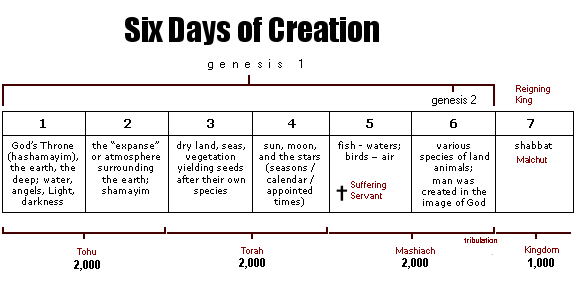 |
In addition to this general, "day by day" account of the creation of the universe by God, the Torah provides a more focused account about how God formed Adam's body from the dust of the earth and blew into his nostrils the "breath of life" (נשׁמת חיים) so that he became a "living soul" (נֶפֶשׁ חַיָּה). Notice that the more detailed account includes reference to the LORD God, which is the first time the name YHVH (יהוה) is used in the Scriptures. Interestingly, in this second account the earth is described as a sort of "desert." The earth was barren of vegetation, no rain had yet fallen upon the earth, and the LORD formed the man from the "dust from the ground." After breathing into him so that he became a living soul, God planted a garden (or orchard) in Eden, "in the east," and there caused every tree that was pleasant to the sight and good for food to spring up from the ground. In the very midst of this orchard were two special trees: "the Tree of Life" (עץ החיים) and "the Tree of the knowledge of good and evil" (עֵץ הַדַּעַת טוֹב וָרָע). God then instructed the man to tend the orchard and to eat from whatsoever tree he desired, though he was warned not to eat from the tree of knowledge of good and evil, "for in the day that you eat of it you shall surely die" (Gen. 2:17). For more information about this reading, see the Torah summary page:
God's Faithful Love for Israel...
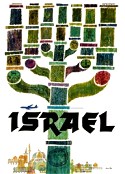
[ Yesterday we witnessed the worst attack on the nation of Israel since its formation in 1948, and that includes the 1973 Yom Kippur war fifty years ago... ]
10.08.23 (Tishri 23, 5784) The Torah celebrates the unique role given to the nation of Israel among all the nations of the world, as it was prophetically written: "When the Most High (עֶלְיוֹן) divided to the nations their inheritance, when he separated the children of mankind, he set the boundaries of the nations according to the number of the children of Israel. For the LORD'S portion is his people; Ya'akov is the allotment or "rope" (חֶבֶל) of his inheritance" (see Deut. 32:8-9).
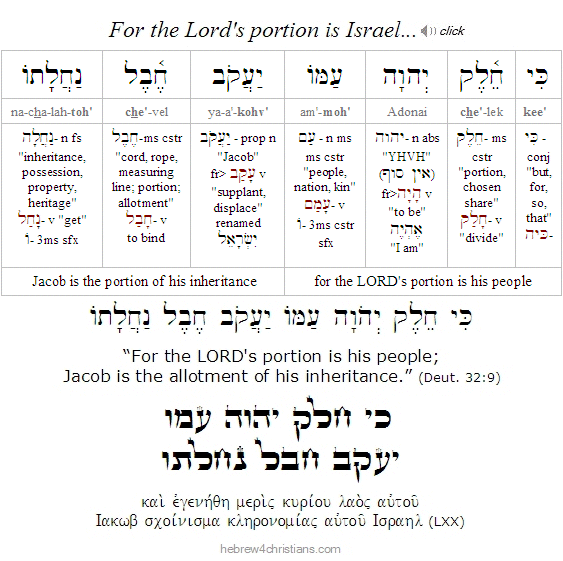 |
Israel has a unique place in the divine providence: "The LORD has chosen Jacob for himself, Israel as his special possession" (Psalm 135:4; Exod. 19:5, Deut. 7:6; 2 Sam. 7:23). To Israel it was said: "You will be my people; and I will be your God," and וִהְיִיתֶם לִי סְגֻלָּה מִכָּל־הָעַמִּים - "you are my beloved treasure among the nations" (Jer. 11:4; Exod. 19:5).
Most significantly, God chose Israel to be the physical conduit for the advent of Yeshua, the Redeemer and Light of the world (Isa. 42:6; Luke 2:32; John 8:12, Gal. 4:4). Yeshua was born the "King of the Jews" (מֶלֶךְ הַיְּהוּדִים), the "splendor of Israel" (תִּפְאֶרֶת יִשְׂרָאֵל), and the One who is the "rope of inheritance" (חֶבֶל נַחֲלָתוֹ) to heaven. "Salvation is from the Jews" (John 4:22). The culmination of God's redemptive activity centers on the Jewish people: Yeshua will come again, not to Rome (or to Geneva) or anywhere else but to Jerusalem, the "City of the Great King" (Matt. 5:35), to fulfill the promises God gave to the Jewish people. Then Zion will be established and all the nations will submit to the reign of the LORD. "What advantage then has the Jew, or what is the profit of circumcision? Much in every way, though chiefly to them were committed the oracles of God" (Rom. 3:1-2).
The sages say, "If you want to live, hold the rope and don't let go, lest you drown." Yeshua the Messiah is the "Rope of our inheritance" (חֶבֶל הַיְרוּשָׁה שֶׁלָנוּ) by which we connect with and obtain God's very salvation. All those who trust in Him are grafted into the godly heritage and inheritance of Israel. They are promised heavenly blessing as partakers of the covenantal promises given to the Jewish people (Eph. 2:19; 3:6; Gal. 3:29; Rom. 2:28-29, Rom. 15:12; Col. 1:12).
Hebrew Lesson
Psalm 135:4 Hebrew reading - with comments (click);
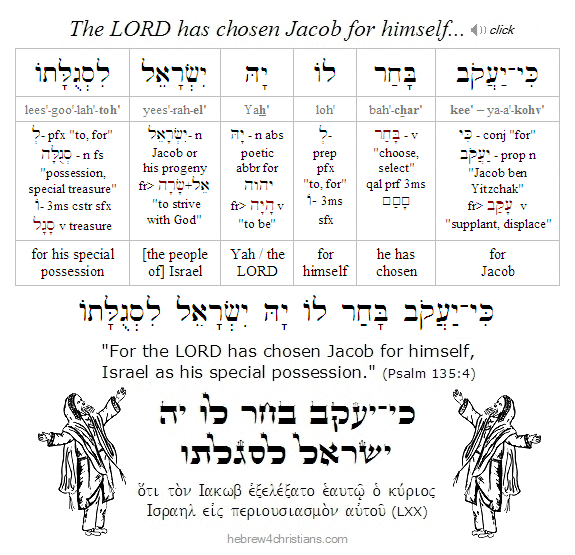 |
Atrocitities and Moral Relativism...

[ The horrifying attack on Israel by "Hamas" (חמאס) - which began at dawn on Saturday during the holiday of Simchat Torah - is a direct consequence of evil thinking, false theology, and pride. Indeed, any religion (or cult) that rationalizes murdering people in the name of their "god" exposes a false theology grounded in the insanity of self-deception and evil. ]
10.07.23 (Tishri 22, 5784) The Scriptures warn that "there is a way that seems right to a person, but its end is the way to death" (Prov. 14:12). Our postmodern culture celebrates "relativism," or the spineless and feckless notion that there is no such thing as objectively knowable truth... Apart from the self-contradiction that arises by saying that it is (objectively) true that there is no objective truth, the unthinking acceptance of this sophistical perspective leads to mindlessness, the lack of creativity, moral stupidity, apathy, and delusional thinking. Popular culture inculcates and preaches there are no moral absolutes and therefore terms like "right" and "wrong," "just" and "unjust," "true" and "untrue" should (ahem) be translated as expressions of subjective preference without any reference to moral categories or structures that extend beyond the individual (or a particular "group"). According to this backwards view, Mother Theresa was no better a person than was Adolf Hitler; and therefore genocide, slavery, murder, and so on, are "lifestyle choices" that express individual or collective preference - and nothing else. Indeed such a viewpoint claims there is no way to infer an "ought" from an "is" (no "prescription" from "description") and therefore assigning moral praise, blame or responsibility is ultimately meaningless.
Understand, then, that the uncritical acceptance of epistemological and moral relativism stifles the life of the mind by implying that there is no difference between truth and error, between good and evil, between beauty and ugliness, between logical and illogical thinking, and so on. It is therefore a form of insanity, that is, deranged thinking. However, since language and meaning are necessarily grounded in logic, naive relativism is ultimately unintelligible and incommunicable, since logic assumes that meaning and rules of inference serve as the conditions of any expression of thought. I share this to point out that the thinking of our culture is not based on careful reflection or reasoning but is essentially a matter of brute force, and therefore it is rightly to be regarded as irrationalism, an implied appeal to violence, and depraved thinking. Of course this sort of relativism is a very useful indoctrination technique regularly used by political agitators, the mass media, by government propagandists, religious cults, con artists, and by all those who rely on dimwitted people to manipulate and control. Therefore the thoughtful person of truth, that is, the person of genuine moral conviction derived from intuitive axioms of reasoning, will always be regarded as an enemy to those who live and practice the lie.
Martin Buber once said, "What is accomplished through lies can assume the mask of truth; what is accomplished through violence can go in the guise of justice, and for a while the hoax may be successful. But soon people realize that lies are lies at bottom, that violence is violence - and that both lies and violence will suffer the destiny history has in store for all that is false." As Yeshua himself said, "For this purpose I was born and for this purpose I have come into the world -- to bear witness to the truth. Everyone who is of the truth listens to my voice" (John 18:37). "Blessed are those who wash their robes, so that they may have the right to the Tree of Life and that they may enter the city by the gates. Outside are all those who love and practice the lie..." (Rev. 22:14-15).
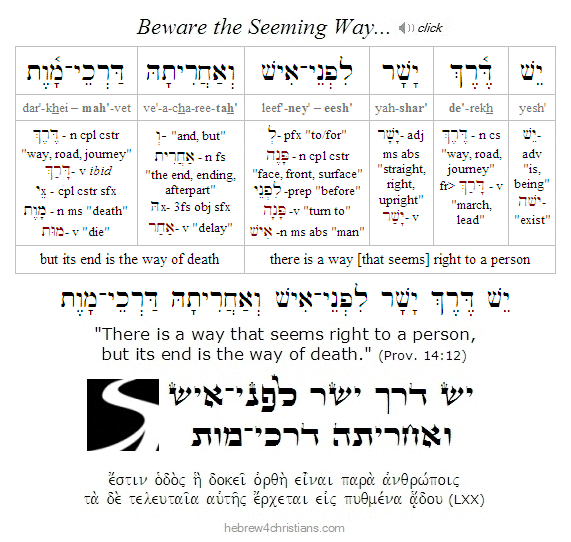 |
Sanctifying our Days...
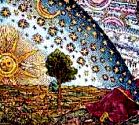
10.06.23 (Tishri 21, 5784) The "appointed times" of the LORD (i.e., mo'edim: מוֹעֲדִים) were given by God to help us turn away from the omnipresent urge within the human heart to embrace vanity: "Every one of you shall revere his mother and his father and guard (שָׁמַר) my Sabbaths (שַׁבְּתתַי)... Do not turn to worthlessness (i.e., אֱלִיל) or make for yourselves any molten gods" (Lev. 19:3-4). In other words, the Biblical holidays - including Shabbat, Passover, and so on - were intended to help us to sanctify ("set apart," "make holy") the times and seasons in order to remind us of God's Presence (Psalm 104:19). Therefore they are called mikra'ei kodesh (מִקְרָאֵי קדֶשׁ), "times in which holiness is proclaimed" (Lev. 23:2). The Torah's declaration that these days are holy implies that they are set apart for special activities, such as commemorating God as our Creator (Shabbat), our Redeemer (Passover), our Resurrection (Firstfruits), our Lawgiver (Shavuot), our King (Rosh Hashanah), our High Priest (Yom Kippur), our Sustainer (Sukkot), and so on. In this connection it should be noted that it is a mistake to assume that the divine calendar was somehow abrogated with the cross of Yeshua, since all of the Jewish holidays center on Him, and indeed the advent of the Ruach Ha-Kodesh (Holy Spirit) occurred after the resurrection of Yeshua, precisely during the prescribed 50th day jubilee of Shavuot or "Pentecost" (Acts 1:8; 2:1-4).
Presently our lives "suspended" between two worlds - this world with its illusions (olam ha'sheker: עוֹלָם הַשֶּׁקֶר), and the real world of spiritual substance and meaning (olam ha'emet: עוֹלַם הַאֱמֶת). We exist in an "already-not-yet" state of expectation and yearning where we must consciously mediate the truth of heaven by bringing it "down to earth" by means of our faith (emunah: אֱמוּנָה). This is a truth war, and by truth I do not mean intellectual knowledge as much as the living truth that marks the lifestyle and vision of a follower of Messiah. We consciously remember Torah truth; we choose to always "set the LORD before us," and take "every thought captive to the passion of Messiah..." May God help each of us heed the call to walk in holiness by the power of His love and grace. Amen.
Hebrew Lesson:
Psalm 104:19 Hebrew reading:
The Future of Sukkot...
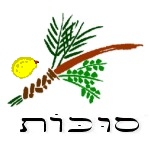
10.06.23 (Tishri 21, 5784) Our Torah reading for the holiday of Sukkot includes Leviticus chapter 23, the great chapter of the Bible that describes the mo'edim, or the "appointed times" of the LORD. The chapter begins: "The Lord spoke to Moses, saying, 'Speak to the people of Israel and say to them, These are the appointed times of the Lord (מוֹעֲדֵי יְהוָה) you shall proclaim as holy convocations (מִקְרָאֵי קֹדֶשׁ); they are my appointed times'" (Lev. 23:1-2). The LORD then lists the eight appointed occasions for the redeemed people of God.
Apart from the weekly Sabbath day (v23), the spring holidays include: Passover and Unleavened Bread (v4-8), then Firstfruits (v9-14) followed by the Omer Count leading up to the great jubilee of Shavuot or "Pentecost" (v15-21). For the most part Christian tradition has recognized these holidays, albeit in a "Christological" way, as "Sunday," "Good Friday," Resurrection day ("Easter"), and Pentecost, respectively.
The list of the appointed times in Leviticus chapter 23 continues, however, without a break in the Torah text, regarding the fall holidays, beginning with Yom Teruah ("Rosh Hashanah") (v23-25) on the first day of the seventh month, followed by the fast of Yom Kippurim on the 10th day of the month (v26-32), culminating in the holiday of Sukkot five days later (v33-43). Notice that the description of Sukkot is the longest of the holidays, and indeed Sukkot is the longest of the yearly mo'edim, spanning nine days. This section of the Torah ends: "Thus Moses declared to the people of Israel the appointed feasts of the Lord" (v44).
There is a sorrow I feel within my heart during the Torah's appointed holidays, particularly regarding the fall holidays of Teruah, Yom Kippurim, and Sukkot (but also with the winter holidays of Chanukah and Purim). As mentioned above, Christian tradition has embraced the idea of the Sabbath ("Lord's Day") and the spring holidays, but it has (historically) disregarded the other Torah holidays (though some church traditions still mention them as part of their liturgical calendars). This creates a sense of alienation within me because it fails to acknowledge how Yeshua came to fulfill every "jot and tittle" of the Torah (Matt. 5:17-19).
Just as there is a veil presently over the eyes of the Jewish people regarding the deeper significance of Passover and the spring holidays, so there is a veil presently over the eyes of the Christian world regarding the deeper significance of the fall holidays... When Yeshua returns to restore Israel after the prophesied End of Days, the fall holidays will be realized and fulfilled: All Israel shall be saved, and all the nations shall come to Jerusalem to hear the Law and celebrate the festival of Sukkot (Isa. 2:3; Zech. 14:16). This will be the fulfillment of Hoshanah Rabbah - "the Great Salvation!" Amen. Halevai. Come, O Lord!
Hebrew Lesson
Zechariah 14:9 Hebrew reading (click):
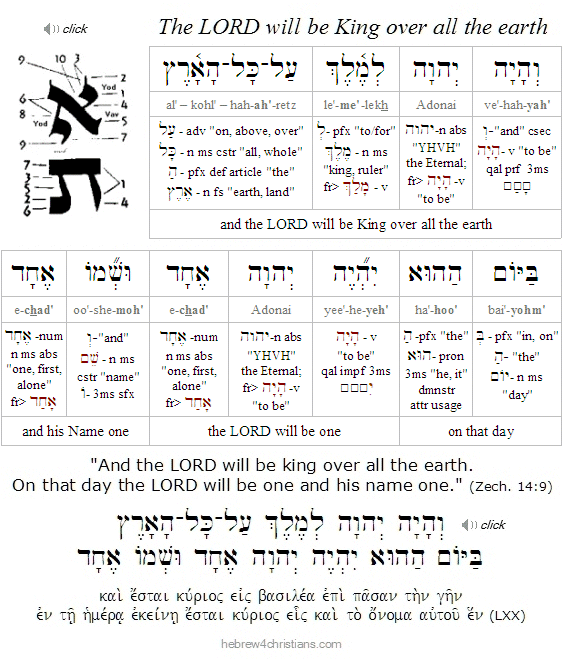 |
Note: Did you know that the whole world will one day celebrate Sukkot when Yeshua returns in his glory? As it is written (Zech. 14:16): "And it shall come to pass, that every one that is left of all the nations which came against Jerusalem (i.e., after the climactic battle of Armageddon) shall go up from year to year (וְעָלוּ מִדֵּי שָׁנָה בְשָׁנָה) to worship the King, the LORD of hosts, and to keep the Feast of Tabernacles (חַג הַסֻּכּוֹת)."
Perhaps Sukkot will be honored in commemoration of the birth of Messiah, when Yeshua "tabernacled" with us to become the great Lamb of God and the atoning sacrifice for us all (John 1:14; Rom. 3:23-25; 1 John 2:2). Amen. "Hoshanah Rabbah," the climax of Sukkot, is called the "great salvation" of the LORD God of Israel.
The Circle of Torah...
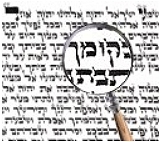
[ Simchat Torah begins Saturday Oct. 7th at sundown and runs through the following day. ]
10.05.23 (Tishri 20, 5784) Each week in synagogues across the world a portion from the Torah (called a parashah) is studied, discussed, and chanted. Jewish tradition has divided the Torah into 54 of these portions - roughly one for each week of the year - so that in the course of a year the entire Torah has been recited during services. The final reading of this cycle occurs on the holiday of Simchat Torah ("Joy of the Torah"), which immediately follows the holiday week of Sukkot. On Simchat Torah, we celebrate both the completion of the year's Torah Reading cycle as well as the start of a brand new cycle. Each Jewish year, then, we "rewind" the scroll and begin again. The sages have wisely said that you cannot compare studying Torah for the 49th time to studying it for the 50th time....
Our spiritual inheritance is bound up with the Torah: it is part of our story, our history, our heritage (Gal. 3:7; Rom. 4:16; Luke 24:27). The stories of Torah serve as parables and allegories that inform the deeper meaning of the ministry of Messiah: "Now these things happened to them as an example, but they were written down for our instruction, on whom the end of the ages has come (1 Cor. 10:11). "For whatever was written in former days was written for our instruction, that through endurance and through the encouragement of the Scriptures we might have hope" (Rom.15:4). "All Scripture is inspired by God..." which refers first of all to the Torah, the Writings, and the Prophets which attest to the Messiah (2 Tim. 3:16-17). You are therefore no longer a stranger or outsider to the heritage of the LORD but a partaker of the covenantal blessings (Eph. 2:12,19). Disciples of Yeshua are called talmidim (תַּלְמִידִים) -- a word that comes from lamad (לָמַד) meaning "to learn." Among other things, then, following the Messiah means becoming a student of the Scriptures He loved and fulfilled (Matt. 5:17-18; Luke 24:44-45). Only after learning from Yeshua as your Teacher will you be equipped to "go to all the nations and teach" others (Matt. 28:19).
We read V'zot HaBerakhah ("this is the blessing") at the end of Simchat Torah, which is the final portion of the entire Torah itself... After reading this portion, we "rewind the scroll" back to the beginning to begin reading parashat Bereshit. We do this every year because Talmud Torah - the study of Torah - is an ongoing venture in the life of a Jew. In this connection, it is interesting to note that the very first letter of the Torah is the Bet (בּ) in the word bereshit (בְּרֵאשִׁית), and the very last letter of the Torah is the Lamed (ל) in the word Israel (יִשְׂרָאֵל). Putting these letters together we get the word lev (לֵב), "heart," suggesting that the entire Torah - from the first letter to the last - reveals the heart and love of God for us... Moreover, the first letter of Scripture is a Bet (בּ), as explained above, and the last letter is a Nun (ן) in the word "Amen" (אָמֵן), so the whole Bible - from beginning to end - reveals the Person of God the Son (בֶּן) for us...
Since we are about to begin the Torah again for a new year, it is worthwhile to remind ourselves about how the Torah itself begins... In this connection we note that it speaks from an omniscient, "third person" perspective. When we read, "In the beginning, God (אֱלהִים) created the heavens and the earth," we must ask who exactly is speaking? Who is the narrator of the Torah? The very next verse states that the Spirit of God (רוּחַ אֱלהִים) was hovering over the face of the waters (Gen. 1:2), followed by the first "direct quote" of God Himself: i.e., "Let there be light" (Gen. 1:3). The creative activity of Elohim (God) and the presence of Ruach Elohim (the Spirit of God) are therefore narrated by an omniscient Voice or "Word of God." Obviously the Spirit of God is God Himself (who else?), just as the Word of God is likewise God Himself, and therefore the first verses of the Torah reveal the nature of the Godhead. God is One in the sense of echdut, "unity," "oneness," and and so on, though not "one" in the monistic sense of a solipsistic mind (νοῦς). God is beyond all predications: there can be no sense of "person" apart from relationship, and therefore God's Personhood entirely transcends all our finite conceptions - and yet God forever is One....
Hebrew Lesson
Psalm 19:17 Hebrew reading (click):
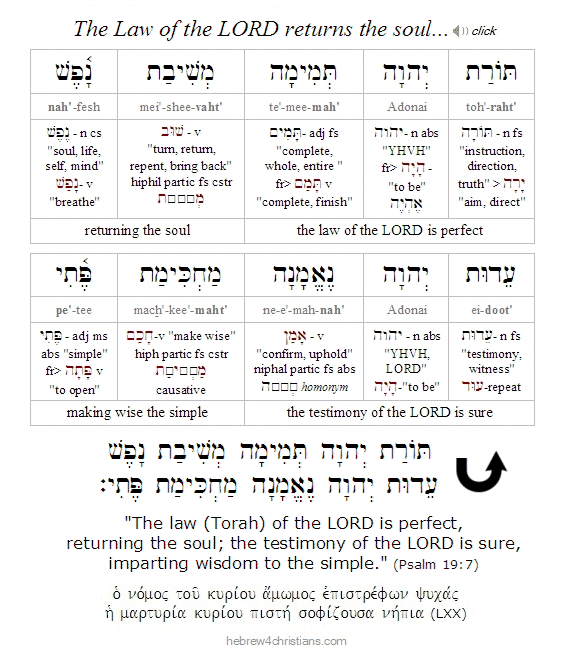 |
The Way of Inner Peace...

10.05.23 (Tishri 20, 5784) "Seek first the kingdom of God and His righteousness, and all these things shall be added to you" (Matt. 6:33). Here Yeshua calls us to a higher spiritual consciousness centered on the righteousness of God (i.e., the mercies of God) given to those who have come to know him. When we earnestly focus our hearts to connect with the Lord, time-bound cares of this world begin to fade and we will be set free from worries, frustrations, invented needs, and other useless passions. We will be delivered from the inner pressure, the sense of urgency, and exhausting attempts to control things in our life. We will be set free when we discover that it is not our job to make the way for ourselves, or to correct the world around us, but to surrender and simply accept God's promise that he will never leave nor forsake us, that he will always be with us, and that he will direct our steps. "Take no thought for your life," literally, do not be anxious for your life (μὴ μεριμνᾶτε τῇ ψυχῇ ὑμῶν), meaning do not be inwardly divided (μερίζω) or uncertain.
It is a form of covetousness to seek our own will apart from God's direction; indeed, that is the very essence of idolatry. On the other hand, when we forsake our own inner kingdom and turn to the LORD God and his will, our burdens will be lifted and "all these things shall be added to you," that is, blessings of inner peace, courage, contentment, and joy. We will be blessed with "every spiritual blessing in the heavenly places in the Messiah" (Eph. 1:3). Yeshua's yoke is easy and his burden is light, and therefore whatever God calls you to do, you can do with shalom, that is, with serenity and inner peace... The kingdom of God is about righteousness and peace and joy in the Holy Spirit (Rom. 14:17).
But we must "set the LORD always before us" (Psalm 16:8). Temptation arises whenever we forget our radical need and once again try again to "control life" on our own terms... Our eyes drift back to the world with its storms and waves, and we begin to sink into despondency. By heaven's mercy we are able to cry out, "Lord, save me!" and we discover that He is present there, too, in the midst of the tempest, stretching forth his hand to hold us up. In his lovingkindness he reminds us to keep our focus on him (Matt. 14:30-31).
"Do not store up for yourselves treasures upon earth where moth and rust destroy, ... be rich toward God" (Matt. 6:19-20; Luke 12:21). When we treasure God, our focus is directed toward the eternal reality, and our interest in this world fades. We trust God to meet our daily needs and surrender our future to His care. The only worry we face concerns our own deficiencies in our obligations to the Savior. Our duty is to love God in the truth - bekhol levavkha - with all our heart, having no thought of ourselves. Indeed, self-denial means to quit thinking about yourself (from α-, "not," + ῥέω, "to speak") by accepting what God has done for you. "It is not my business to think about myself. My business is to think about God. It is for God to think about me" (Simone Weil).
"Not my will, thine be done..." Your life is not your own; and you are not in control apart from God's presence. You can't make it on your own, and in truth, you can't do anything of real worth apart from God's hand and grace. As our Lord said: "Without me you can do nothing" (John 15:5). There is no point in wearing out your heart in vanity: Whatever God calls you to do, you can do with shalom. Amen.
Hebrew Lesson
Isaiah 26:3 reading (click for audio):
Witness of the Spirit...
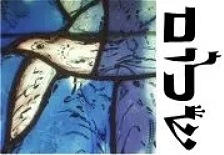
10.05.23 (Tishri 20, 5784) "The Spirit shall testify of me" (John 15:26). But what is the testimony of the Spirit but the truth of the unconditional love of God given in Yeshua? The inner witness from heaven gives light to our darkness and overcomes all our fears. A great challenge, however, is to personally receive the blessing of God's acceptance because we want to define the conditions in our own terms (that is, we refuse to believe).
So do you really want to be made new? Are you ready to turn away from your deep-rooted and habitual distance from God by surrendering to his love for you? Salvation is about being healed from your self-imposed exile to experience God's compassion for your life. The Holy Spirit moves you beyond the rules of "religion" and the "hired servant" mentality to that of a beloved and celebrated child (Luke 15:18-24). The hired servant does not live in the house forever, but a child of the Father does: "If the Son therefore shall make you free, you shall be free in reality" (John 8:36). If you ever find yourself seeking God's love by appealing to anything other than God's own heart, for instance, through your religion, your good deeds, and so on, or if you withhold your inner pain, seeking to escape your sinfulness, then you are still in fear, which is a state of unbelief. Prayer means surrendering your fears, abandoning yourself to God's heart, and letting go to receive the blessing...
"For all who are led by the Spirit of God are children of God. For you did not receive the spirit of slavery to fall back into fear, but you have received the Spirit of adoption (πνεῦμα υἱοθεσίας) as children, by which we cry, "Abba! Father!" The Spirit confirms within our spirit (συμμαρτυρεῖ τῷ πνεύματι ἡμῶν) that we are children of God (Rom. 8:14-16).
Hebrew Lesson
Isaiah 64:8 Hebrew reading (click):
Sorrowful yet Rejoicing...

10.04.23 (Tishri 19, 5784) How often do we suffer for the wrong reasons? We may assume, for instance, that because we are followers of Yeshua we should be immune from the common frailties and failings that beset all human beings. But do you think that you beyond the possibility of temptation or trouble? Are you scandalized if you experience loneliness, or uncertainty, or shame, or fear? Do you chafe and protest too much? How do you express your faith, especially when you are tested or face serious difficulties? Think of those Christians who are persecuted and even killed for the sake of the message of Messiah. Do you wonder where they find the strength to withstand such evil?
Of course we believe that God will one day wipe away all of our tears, but that implies, does it not, that we will weep over many things as we go through this life, the "Valley of the Shadow of Death." Perhaps some of us are spiritually dysfunctional because we seek exemption from our own mortality and wounded condition. Again, how will God wipe away our tears if we never cry?
We are powerless to save ourselves, though thankfully God does the impossible. "God creates out of nothing. Wonderful you say. Yes, to be sure, but he does what is still more wonderful: he makes saints out of sinners" (Soren Kierkegaard). And if the miracle of salvation takes root within our hearts, we can help others by confessing our sorrows, our wounds, and our hope in God's great promises. When we share our struggle with others, we are given strength to overcome worldly despair and we discover that our faith overcomes the darkness.
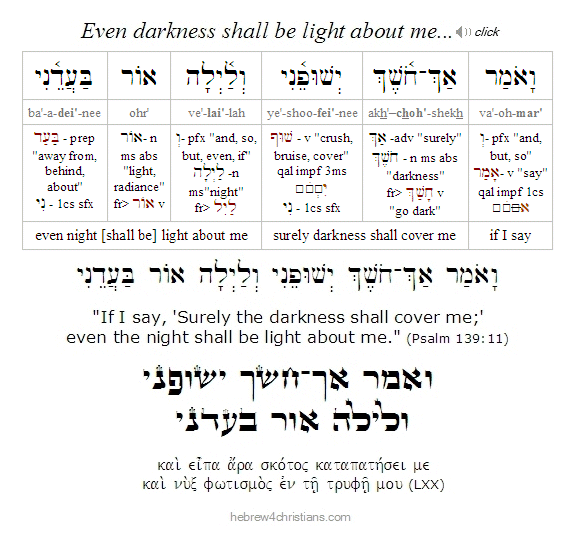 |
We read in the Torah: "Because you did not serve the LORD your God with joyfulness and gladness of heart, because of the abundance of all things, therefore [all these afflictions will come upon you]..." (Deut. 28:47-48). Joy is a prerequisite for serving the LORD, and true happiness is found in the grace He supplies us to do His will. Indeed, the Greek word for joy used in the New Testament (χαρα) is related to the word for grace (χαρις), so there is a profound connection between apprehending grace and experiencing joy (Phil. 4:4).
"Count it all joy when you fall into various trials, knowing that the testing of your faith produces patience. But let patience have its perfect work, that you may be perfect and complete, lacking nothing." (James 1:2-4). Sometimes, of course, it is difficult to "count it all joy," especially when we feel oppressed or saddened. The Scriptures never disavow our emotional states (read Psalm 13 or Psalm 88, for example), but nevertheless an underlying note of grace is always sounded, even in painful moments and times. This is our consolation in suffering.... we are sorrowful yet ever rejoicing.
And this works the other way, too. Even in our most joyous occasions, such as the great simchah (happiness) of a wedding, the "glass is shattered" to remind ourselves that our eternal joy is not yet fulfilled... We live in an "already-not-yet" state of existence. Our best moments are beset with shadows; our darkest are limned with hope of the new eternal day to come. As Paul said, "I consider that the sufferings of this present time are not worth comparing with the glory that is to be revealed to us" (Rom. 8:18).
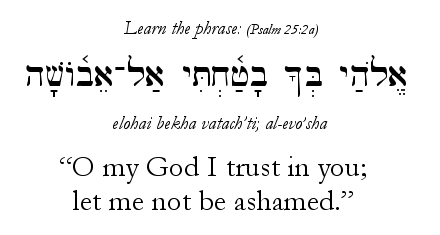 |
Knowing God's Heart...
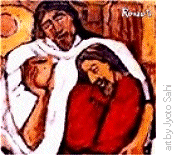
[ "When you read God's Word ... continually to say to yourself: It is I to whom it is speaking - this is earnestness, precisely this is earnestness. This is most crucial, as unconditionally the condition if you are to come to see yourself in the mirror." - Soren Kierkegaard ]
10.04.23 (Tishri 19, 5784) "Our Lord Jesus oftentimes said, 'This I am. This I am. I am what you love. I am what you enjoy. I am what you serve. I am what you long for. I am what you desire. I am what you intend. I am all that is'" (Julian of Norwich). Amen to such beautiful words. And we should attend to stirring of our hearts, our deepest desires, since they ultimately find their end in God. As C.S. Lewis noted, our longing for a love which no experience in this world can fully satisfy is a sign that were made for God's eternal love.
You seek beauty, peace, love, and life, but the Lord says that he is the substance and heart of all these things... The lilies of the field do not toil but are arrayed in God's pleasure and design; the birds do not store up their food in barns but are sustained to take wing in the winds of God's hovering presence. Every hair on your head is numbered; there is not a word on your tongue unheard by your Heavenly Father.
Imagine, if you will, Yeshua saying the following words, all of which are attested in the holy Scriptures: "I am the bread of life. I am the substance of what satisfies your hunger. I am essential for life. I am the manna that comes down from heaven to feed you and make you forever alive. I give you sustenance and strength; I will give you living water that will be like an oasis for your heart - the Spirit of Life that will comfort you. Blessed are those who hunger and thirst for righteousness, for they shall be satisfied. I alone can satisfy your deepest needs and longings. I am Life itself, the source and blessing of all that is good and worthy and true.
I am the light of the world. I give to you the light of life. My presence will guide your way. I will turn your darkness into light. In me is the fountain of life; in my light you shall receive light... I will give you a heart to know me. I am the Word of God: the Voice and revelation of the LORD, the Source of all truth. I am the LORD who brings you out of the darkness of your bondage; I am the one who redeems you, the one who atones for you, the one who suffers and dies for you to remove what separates you from God's Presence. I am the Father who receives you with open arms; I sacrifice the fattened calf to celebrate the blessing of your life... I am the LORD your healer; I sanctify you in my love.
I am the gateway to life. I am the door that opens to the Kingdom of Heaven. I am the way to the Father's heart; I express the truth of God in who I am; I am the resurrection of God: No one can enter the kingdom apart from me. I am the LORD and there is no Savior apart from me. Do not be afraid: I will hold your right hand; it is I who say to you, "Fear not, I am the one who helps you." I am the Good Shepherd who faithfully guards each one of his flock.
I am your way to connect with God. I am the true Vine. Live in me and I will live in you. I will never leave nor forsake you. Draw near to me: lean upon my bosom. I will teach you what love means. Find comfort in my love for you. Then you will be able to love others and glorify the truth of my heart's passion for all people."
Yeshua is the way, the truth, and the love for which our heart cries out. In Him we "live and move and have our being." He is the Alef and Tav, the First and the Last, the Beginning and the End, and the Sacred Center of all that exists. His heart is our "all in all," the fullness of all that will ever mean anything at any time. "I am my beloved's and my beloved is mine; he grazes among the lilies." May we open our hearts and draw near to him today. Amen.
Hebrew Lesson
Psalm 63:3-4 Hebrew reading (click):
Celebrating God's Provision...
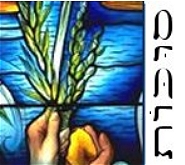
[ Chag Sukkot Sameach, chaverim! For some family Sukkot pictures click here. ]
10.04.23 (Tishri 19, 5784) Though the LORD is forever enthroned in heaven as our Creator, our King, and our loving Deliverer, and though the heavens shout out his praise and the whole earth is filled with His glory (Isa. 6:3), nevertheless we must make a dwelling within our hearts. "Let them make a sanctuary for me that I may dwell within them" (Exod. 25:8). In great humility the LORD stands at the door and knocks (Rev. 3:20). Where does God dwell but where He is given a place, a sanctuary, a throne within the heart?
The Torah states, "On the first day [of Sukkot] you shall take to yourselves the fruit of the goodly tree (etrog), branches of palm trees (lulav), boughs of leafy trees (hadassim) and willows of the brook (aravot), and you shall rejoice before the Lord your God seven days" (Lev. 23:40). In Jewish tradition, after reciting the Hebrew blessing and shaking the bouquet around, it is customary to recite (or sing) the following antiphon from Psalm 136:
הודו ליהוה כי־טוב
כי לעולם חסדוֹ
hoh·doo la·Adonai kee-tohv
kee le·oh·lahm chas·doh

"Give thanks to the LORD, for he is good,
for his steadfast love endures forever."
(Psalm 136:1)
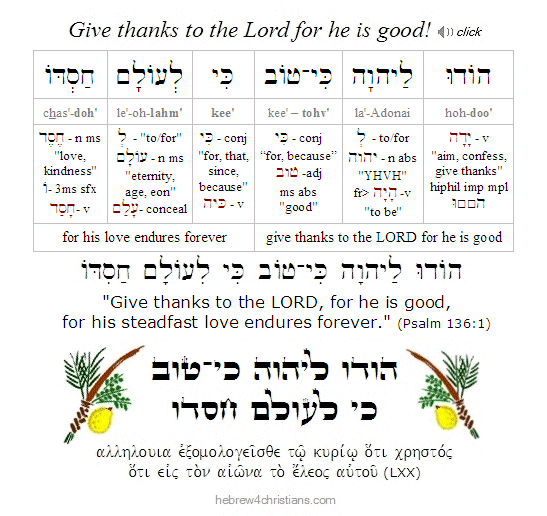
Indeed, is there any better reason to give thanks to the LORD than because of His steadfast love, i.e., His chesed (חֶסֶד)? Is there anything greater than God's love? Can anything overcome it? Can even the hardness of your own heart somehow veto or negate it's purposes? It was because of His great love that God himself (יהוה) "emptied Himself" of heavenly glory, clothed himself in human flesh and came to us, disguised as a lowly servant. God performed this act of "infinite condescension" in order to "sukkah" with us as our "hidden King" (John 1:1,14, Phil. 2:7-8). Your neshama (soul) is likened to the "Shulamite woman" he came to woo so that you might "come into His tent" -- willingly, from a heart that comes from trust (Song of Solomon).
When we receive Yeshua as the Lover of our souls, we abide in the hope of love that awaits future consummation in the world to come... Meanwhile, we are "suspended between worlds," though the veil of this world has been rent asunder and we may now appear before the LORD in the realm of the spirit by faith. We can come "boldly" before the Throne of Grace (παρρησίας τῷ θρόνῳ τῆς χάριτος) to find help for our lives (Heb. 4:16). Note that the word translated "boldly" in this verse (παρρησίας) comes from πᾶς (all) + ῥέω (to utter), suggesting that we can speak freely to God and share everything within our heart without fear or shame. We do not need to conceal ourselves from the Divine Light -- any more than we need to perform religious rituals or offer any "prescribed prayers" to access Him. We who are trusting in God's sheltering love understand the LORD to be our loving Savior and Redeemer. In our brokenness we can bare our souls before Him without fear ("there is no fear in love" - אין פַּחַד בָּאַהֲבָה). We can express "all our heart" to the LORD and be assured that He will help us in our hour of need (Heb. 4:16). "Trust in him at all times, O people; pour out your heart to him; God is a refuge for us" (Psalm 62:8).
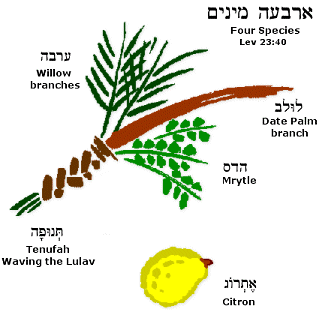 |
 |
Dealing with Doubt...

10.04.23 (Tishri 19, 5784) Though it is worthwhile to ask questions about what we believe, to seek for understanding, and to study the Scriptures, we must do so using the principle that "faith seeks understanding," rather than the converse principle that "understanding seeks faith," since the latter elevates human reason to be the judge and arbiter of the things of God, a role for which it is both incapable and unsuited (Isa. 55:8-9; Job 9:10; 11:7; Psalm 139:6; Rom. 11:33). God is not a "what" but a "Who," and that reality determines the means by which we are able to know him (John 4:24). We can indeed know truth about God, though the means for attaining such knowledge transcends the abilities of unaided human reason (see Deut. 29:29). In other words, we know the truth about God when we encounter the Divine Presence by means of revelation...
Some people talk about "honest doubt" regarding matters of God, and while there may indeed be occasions to confess the limitations of our ability to understand the mysteries of heaven and earth, we must be on guard not to ply a present lack of "semantic closure" as an excuse for despair that hardens our hearts and justifies our sin... The lower nature's machinations are so devious that we must be on guard and "test what manner of spirit" we are (Luke 9:55; 1 John 4:1; James 4:4). In the name of "honest doubt" a soul can invent all manner of difficulties of interpretation, the mind may become jaded and agnostic; the heart cools and steps away from the passion of faith... Doubt introduces hesitancy, compromise, and godless misgivings; it is a leech upon the soul, sapping the strength of conviction, weakening the balm of assurance. Be careful. Honest seeking is one thing, but practiced doubt may be an evasive measure - a diabolical ploy meant to distance yourself from responsibility to the truth of God's Presence....
Often enough people have a "problem" with faith not because there is insufficient reason to believe -- after all, every soul has intuitive awareness of the reality of God's reality and power (see Rom. 1:19-20; Psalm 19:1-4; Acts 14:17) -- but because secret sin lurking within the heart is cherished as the soul's ultimate concern and most precious value. Such idolatry of heart is the essence of much "doubt," since faith ultimately is an act of will. "The heart has its reasons that reason knows not of" applies both to the realm of God but also to the affections of the selfish heart... In that sense doubt serves as a deal made with the devil - an exchange of a "mess of pottage" for the blessing of God!
Charles Spurgeon once wrote: "It seems that doubt is worse than trial. I had sooner suffer any affliction than be left to question the gospel or my own interest in it" (Vol. 29, Sermons). Amen, the gospel cannot be esteemed apart from personal interest in its truth, for otherwise we are merely toying with its message. You must believe that the truth of God - and being properly related to this truth by means of a trusting relationship - is the most inestimably precious and important matter of your very existence... We cannot escape from the double-mindedness of our way apart from sincerely turning to God and asking Him to show us his glory, his beauty, and the wonder of his great love. A divided house cannot stand. The way of deliverance from yourself - the way to be free of enslaving passions and dark desires that fragment the soul - is by means of the miracle of God: "For the flesh has desires that are opposed to the Spirit, and the Spirit has desires that are opposed to the flesh, for these are in opposition to each other, so that you cannot do what you want' (Gal. 5:17; Rom. 7:15-25), but if you are led by the Spirit, you are free from the law of sin and death and are enabled to live according to a new source of power and life, namely, the law of the Spirit of Life in Messiah Yeshua (Rom. 6:6,14; Gal. 2:20). Living in slavery to sin is to lose yourself - to have no "center," no self that unifies your heart and focuses your reason for being... It is the hell of no longer believing in anything at all, and especially no longer believing yourself.
Soren Kierkegaard once lamented: "The matter is quite simple. The Bible is very easy to understand. But we Christians are a bunch of scheming swindlers. We pretend to be unable to understand it because we know very well that the minute we understand we are obliged to act accordingly." There is a very real danger of "thinking about" truth rather than living it. For instance, you might study the Psalms as literature and attempt to understand the nuances of Hebrew poetry, but that is altogether different than reciting the psalms with inner passion, with simple conviction and the earnest desire to unite our heart's cry with the devotion that gave life to the words... We must read with a heart of faith to unlock the truth that speaks to the heart. If you believe only what you understand, your faith is actually grounded in your own reasoning, not in the Divine Voice of Love...
The way of trust is always a matter of the heart's passion and hope... The Spirit of God speaks gently: "My child, give me your heart, and let your eyes observe my ways" (Prov. 23:26). When we call God "Abba," we are not using a formal name that indicates distance, but rather a term that evokes intimate closeness and reliance. Calling out to God as "Abba" signifies that we genuinely accept that God regards us as his beloved child...
Hebrew Lesson
Proverbs 23:26 reading (click for audio):
Vapors of Time...
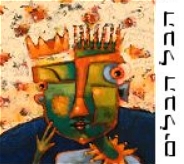
10.04.23 (Tishri 19, 5784) Shalom chaverim. The scroll of Ecclesiastes (מגילת קהלת) is always read during the festive holiday of Sukkot, though you might be surprised to learn that many of the early sages did not want it included as part of the Jewish Bible. After all, the philosophy of Kohelet - that we are incapable of fully understanding the purposes of the world, and therefore much of what we think is important is really havel havalim (הבל הבלים), "vanity of vanities" - is contrary to the theology of reward and punishment found in the writings of Moses. This question is not unlike the Book of Job and the mysterious question as to why the righteous suffer....
It is to their credit that the Jewish sages finally decided to include Ecclesiastes as part of the accepted canon, however, since it takes humility to admit that we must continue to seek God, despite uncertainty in this world. After surveying the emptiness of "life under the sun," Solomon concludes his reflection as follows: "Fear God and keep his commandments: ki zeh kol-ha'adam (כי־זה כל־האדם), "for this is the whole man" (Eccl. 12:13).
For more on this subject, see Sukkot and Vanity...
Hebrew Lesson
Ecclesiastes 1:2 reading (click for audio):
The Appointed Time of Sukkot...

10.03.23 (Tishri 18, 5784) Besides the Sabbath day, three Torah holidays are explicitly mentioned in the New Testament: 1) Passover/Unleavened Bread, 2) Shavuot (Pentecost), and 3) Sukkot (Tabernacles). Passover was the appointed time of the sacrifice of Yeshua as the Lamb of God (John 1:36; John 13:1; Matt. 26:17, etc); Shavuot was the appointed time of the giving of the New Covenant and the impartation of the Holy Spirit (Acts 2); and Sukkot was mentioned in connection with the salvation of God given in Yeshua, illustrated both by the "Hoshana Rabbah" ceremony of drawing of the water from Siloam, and by the renowned Temple light show the following day (see John 7). Together these three holidays are called "shalosh regalim" (שָׁלוֹשׁ רְגָלִים), the three pilgrimages (to Jerusalem) in which every Jewish male was required to offer sacrifices at the mishkan (and later at the Temple).
Note that I said holidays "explicitly" mentioned in the New Testament, though there are implicit reasons to think Yeshua and his followers kept all seven of the prescribed moedim of the Torah, for example Paul's desire to keep the Yom Kippur fast mentioned in Acts 27:9. Moreover, Yeshua was at the Temple during the time of Chanukah (see John 10:22), though that was not a prescribed festival given in the Torah. Sukkot Sameach, chaverim!
Yeshua and Sukkot...
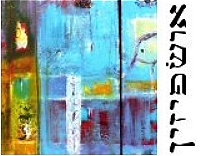
10.03.23 (Tishri 18, 5784) The Aramaic word "ushpizin" (אוּשְׁפִּיזִין) refers to the seven "guests" whom we remember and honor during the weeklong festival of Sukkot, namely: Abraham, Isaac, Jacob, Joseph, Moses, Aaron, and King David, respectively (שבעה אושפיזין). According to tradition, on each night a different guest (i.e., ushpiz: אוּשְׁפִּיז) enters the sukkah, and we are to symbolically welcome them by offering them a place at our table (this is similar to the tradition of Elijah's Cup during Passover). On the first night comes Abraham; on the second night, Isaac, and so on. Though the origins and date of this tradition are disputed, the Zohar says that the custom of welcoming each ushpiz was practiced during the Second Temple period.
In the Gospel of John we read that just before the Sukkot holiday began, Yeshua's brothers suggested that he go up to Jerusalem to impress his followers there by performing additional miracles and to gain greater fame among the Jewish people (see John 7:1-5). Yeshua told his unbelieving brothers, "My time has not yet come" (John 7:6-8), which may allude to the idea that he would visit the people "in secret" (ἐν κρυπτῷ), like an ushpiz, some time later during the holiday (see John 7:10). It is interesting that the religious leaders "were looking for him" at the festival, and there was much "muttering about him" among the common people as they talked in their sukkahs (John 7:11-13).
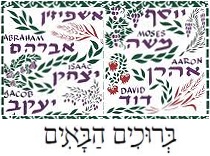 |
During the "middle of the festival," perhaps on the fourth day (the "Day of Joseph" as ushpiz), Yeshua went to the Temple and began teaching the people (John 7:14). When the people marveled at his teaching, Yeshua explained that he was sent by God, and that if anyone wanted to do the will of God they would know his authenticity (John 7:15-18). He then rhetorically asked the people: "Has not Moses given you the law? Yet none of you keeps the law. Why do you seek to kill me?" (John 7:19). When the people said he was crazy for thinking this way, Yeshua alluded to the murderous intolerance of the religious leaders who wanted to kill him for healing a man on the Sabbath day (see John 5:9). He then turned the tables on his accusers: "If circumcision is done on the Sabbath so that the law of Moses would not be broken, then for all the more reason should something be done to fulfill the weightier intent of the law, namely, the giving of life and healing (John 7:23). He then admonished the people to "judge righteous judgment" (מִשְׁפַּט צֶדֶק שִׁפְטוּ), that is, to look beyond appearances to find the heart of the matter. If the people would do that, they would understand the truth of who was "tabernacling" with them (John 1:1,14).
On the last great day of Sukkot, called Hoshana Rabbah (הושענא רבה), the High Priest led a final procession to the pool of Shiloach (Siloam) where he would fill a golden pitcher with water and then return to the courtyard of the Temple. When the High priest poured out the water, shofarim would be sounded and the crowd of people would wave their lulavot while loudly singing out: "Hosanna! Blessed is he who comes in the name of the LORD!" (Psalm 118:25-26). This joyous ritual was known as Simchat Bet Ha'shoeivah (שמחת בית השואבה) "the Celebration of the Water-Drawing," an eagerly anticipated party celebrated with music, dancing and singing throughout the night. The Mishnah describes how the Priests kindled fires on a four great menorahs, lighting up Jerusalem as if it were the middle of the day (Sukkah 5:2). The entire ceremony was in keeping with the Torah's commandment, "You shall rejoice on your holiday" (see Deut. 16:14).
Hebrew Lesson
Psalm 118:25-26 reading (click for audio):
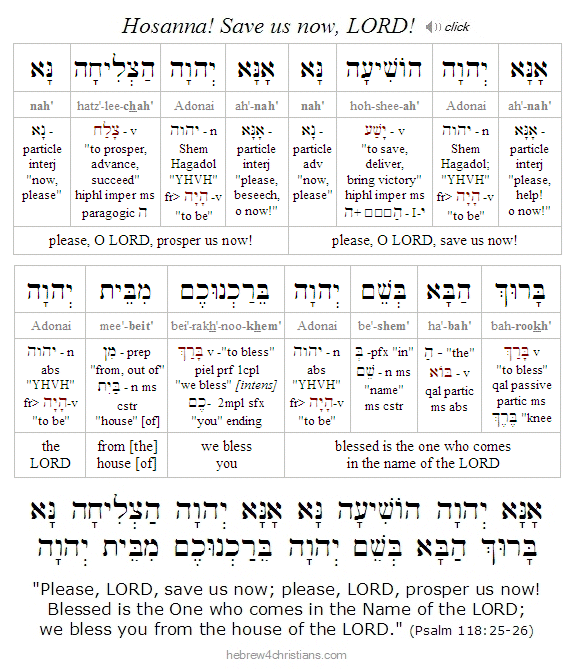 |
It was during this climactic day of "Hoshana Rabbah" - literally this time of "great salvation" (הושענא רבה), that Yeshua cried out: "If anyone thirsts, let him come to me and drink. Whoever believes in me, as the Scripture has said, 'Out of his heart will flow rivers of living water'" (John 7:2, 37-38). He further explained that this water would spring forth within the heart as a result of trusting in Him (John 7:38). Likewise today Yeshua cries out, "To all who are thirsty I will give the springs of the water of life freely" (see Rev. 21:6 and Isa. 55:1).
Finally, on the day following the festival, called Shemini Atzeret (שמיני עצרת), Yeshua returned to the Temple and spoke to the crowd that assembled to watch the "Illumination of the Temple," a spectacular light show performed at the close of the holiday, saying "I am the light of the world. Whoever follows me will not walk in darkness, but will have the light of life" (John 8:12), recalling the words of the prophets: "On that day there shall be no light... and living waters shall flow out of Jerusalem; and the LORD will be king over all the earth. On that day the LORD will be one and his name one" (Zech. 14:6,9; Isa. 13:10; 30:26). In this connection we remember that Yeshua later used the very water from the pool of Siloam (used during the water libation ceremony) to heal the man born blind, thereby miraculously enabling him to see the Light of the World (John 9:5-11).
Hebrew Lesson
John 8:12 Hebrew reading:
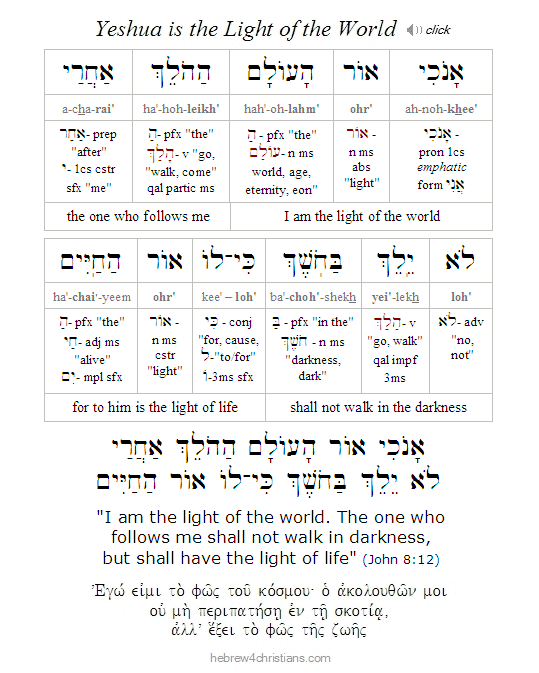 |
Note: The apocryphal "Book of Jubilees" says that the first sukkah, on which the holiday of Sukkot is based, was built by Abraham after he greeted the three angels who came to tell him his wife Sarah would at last bear a child (Gen. 18:1-10). This is significant, because it links Sukkot with the Akedah (i.e., the sacrifice of Isaac). Indeed, the very first time the word "love" appears in the Scriptures refers to Abraham's passion for his son Isaac, whom he was commanded to offer as a sacrifice on an altar on Mount Moriah. The message of a father's love for his "only" son who was offered as a sacrifice clearly prefigures the greater "Akedah message" of the Gospel (John 3:16).
Click for more Sukkot photos
Sukkot and Freedom...

10.02.23 (Tishri 17, 5784) It's been said that while it took the LORD 40 days to get Israel out of Egypt, it took 40 years to get Egypt out of Israel.... When Israel first left Egypt, they took with them only enough food and water to last for a few days. When these provisions ran out, so did their trust in God. Therefore Sukkot recalls the miracles that God provided to keep His people from returning to Egypt. These miracles - the water from the rock (i.e., "Miriam's Well"), the manna from heaven, the Clouds of Glory - were surely as great as the judgments upon Egypt and the splitting of the Sea of Reeds, and yet the exodus generation never took hold of their new identity as God's redeemed (and therefore free) children... Tragically, the Israelites regularly vacillated between fear and rebellion and thereby forfeited the promises of God. They could not take hold of God's blessing because of their unbelief.
Sukkot remembers the journey of the redeemed people of God - first from Egypt, then to Sinai, and then into the void of the desert places.... The repeated failures of the Israelites in the wilderness was meant to reveal the insufficiency of "Egyptian thinking" by demonstrating God's faithful love and ongoing care. The entire ordeal in the wilderness was a "Sukkot experience" that pointed beyond Sinai....
The holiday of Sukkot symbolizes the journey of this life by means of erecting a sukkah - a flimsy shelter that we are to "live in" for seven days. The sukkah is meant to help us ask ourselves: Where is the true home we seek? Where is the true shelter of our lives? The first Jew (Abram) was called ha-ivri (הָעִבְרִי) - "the Hebrew," a term that means "one who has crossed over" (עָבַר) from another place. When he heeded the call Lekh lekha (לך־לך), "go for yourself," it was Abram's walk of faith that made him into a Jew.... He left the comforts of Ur to become a tent dweller who became a "stranger and sojourner" with God. Similarly, the Jewish people as a whole were forced to leave the "security" of Egypt and journey into the unknown in order to realize the promises of God. Sukkot ultimately reminds us that our security is neither found in political power structures nor in the concrete walls of our homes, but solely in the Presence of God. Our freedom as God's children is at stake in the matter of redemption, and God takes it very seriously when we seek to exchange any supposed source of security for the venture of true faith....
So where is the true home you seek? Are you clinging to hope in this world and its counterfeit security? Are you willing to sacrifice your dignity as a child of God for the protection of the "State"? When God redeemed Israel from Egypt, it was a rebirth experience. Passover represented the means of redemption (the blood of the lamb), Shavuot represented the revelation of the holiness of God (the Sinai experience), and Sukkot represented the walk of faith as reborn and redeemed children. God took Israel out of Egypt (i.e., out of the world) in order to reveal to them who He is -- and who they were in relationship with Him.... The pattern remains the same. The world system is a form of slavery, and Sukkot reveals how God bypasses the world to care for His people...
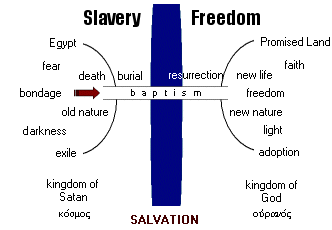 |
The holiday of Sukkot reminds us that slavery is not an option for the redeemed people of the LORD. God wants us to be free from the bondage of our past. We must leave behind our old identities and foreswear our sense of victimization and dependency on anything other than God himself. That is the wilderness experience of faith. God calls us to walk in the Presence of His love, not in the fear of man. We are new creations in the Messiah, reborn to take possession of the promises God has given to us. "For our citizenship (πολίτευμα) is in heaven, from which also we eagerly wait for a Savior, Yeshua the Messiah our LORD (אֲדנֵינוּ יֵשׁוּעַ הַמָּשִׁיחַ), who will transform the body of our humiliation (τὸ σῶμα τῆς ταπεινώσεως ἡμῶν) to be like his glorious body, according to the working of His power that enables Him even to subject all things to Himself" (Phil. 3:20-21).
Hebrew Lesson
Psalm 73:25-26 reading (click):
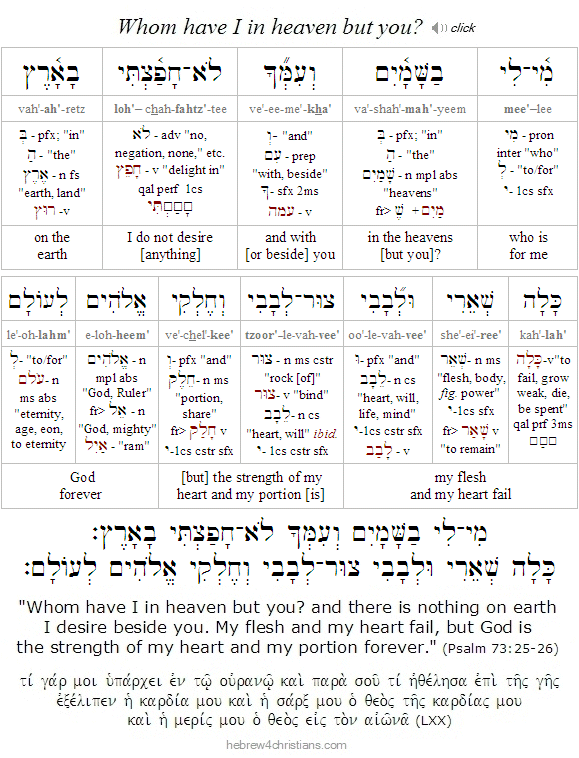 |
Note: The midrash says that the etrog (i.e., the citron fruit, sometimes called the "Persian Apple") was the fruit in the orchard of Eden that Adam and Eve ate in disobedience, resulting in exile from paradise... It is significant, then, that during Sukkot we reclaim and sanctify the very means of our downfall and greatly rejoice that our sin has been atoned through Yeshua the Messiah! Shalom and Sukkot Sameach, chaverim....
Strangers in this world...

[ Chag Sukkot Sameach my fellow sojourners in Messiah's hope... ]
10.02.23 (Tishri 17, 5784) During Sukkot we read the Book of Ecclesiastes (ספר קהלת). Among other things, Kohelet reminds us that we are just passing through this world as "resident aliens" -- here, and yet not here.... We wander; we are lonely; we yearn for our heavenly home. Life in this world is "olam ha'sheker" (עוֹלָם הַשֶּׁקֶר) the false world -- full of deception, troubles, and struggle. Thus Abraham said to the sons of Chet: "I am a 'stranger and sojourner' (גֵּר־וְתוֹשָׁב) among you; sell me a burial site" (Gen. 23:4), and likewise David said: "For we are strangers with You, mere transients like our fathers; our days on earth are like a shadow without abiding (1 Chron. 29:15).
Faith affirms that underlying the surface appearance of life is a deeper reality that is ultimately real and abiding. It "sees what is invisible" (2 Cor. 4:18) and understands that the "present form of this world is passing away" (1 Cor. 7:31). The life of faith therefore calls us to live as toshavim - sojourners - who are at an infinite "distance" from the world of appearances and who seek the Eternal. Sukkot means we ache with a divine "homesickness" as we look forward to our real home in heaven (Heb. 11:9-10). "O You who are at home deep within my heart, enable me to join you deep in my heart."
Hebrew Lesson
1 Chron. 29:15 reading:
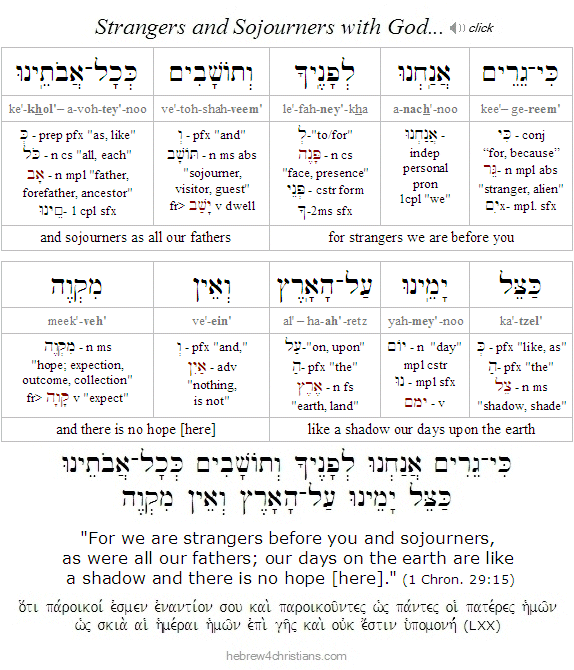 |
Surrounded by His Sukkah...

[ The following is related to the holiday of Sukkot, or the "Feast of Tabernacles"... ]
10.02.23 (Tishri 17, 5784) The root idea of the word "sukkah" (סוכה) means to cover or surround, as in hedge or cloud of protection. The Hebrew root is used when Moses asked to behold God's glory and the meaning of the name YHVH (יהוה), and God said, "Behold there is a place by me where you shall stand on the rock, and while my glory overtakes you I will cover you with my hand (וְשַׂכּתִי כַפִּי עָלֶיךָ) until I have passed by (Exod. 33:21-22). The hand of God (יַד־יְהוָה) is ultimately our sukkah, and indeed the LORD writes our names upon his palms and sets us as a seal upon his heart (Isa. 49:16; Sol. 8:6).
Hebrew Lesson
Exodus 33:22b Hebrew reading (click):
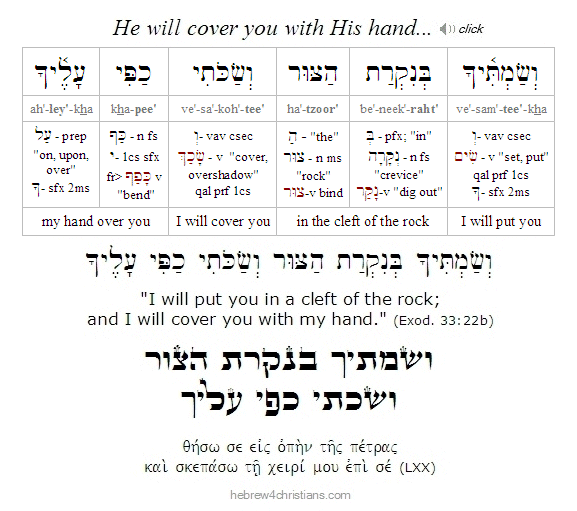 |
Likewise King David affirmed that God would hide him within his sukkah (סוכה) and elevate him upon the Rock that is Messiah: "For he will hide me in his sukkah (i.e., his cloud); in the time of trouble he will conceal me in the secret of his tent (i.e., his Presence): he will raise me up upon a Rock" (Psalm 27:5). Note that the Hebrew translated "he will hide me" (i.e., יצפנני) can also be translated as "he will treasure me," suggesting that God will overshadow and protect you from harm because you are his beloved (1 Cor. 10:4).
Hebrew Lesson
Psalm 27:5a Hebrew reading (click):
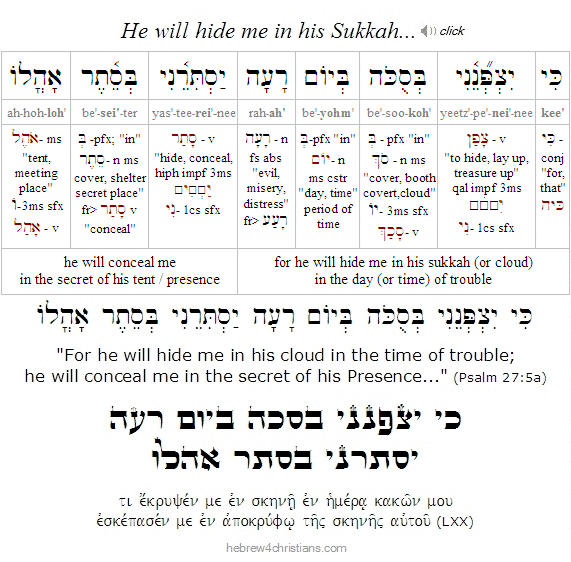 |
Since God's Name (יהוה) means "Presence," "Breath," "Compassion," "Love," "Healing," and so on, we are surrounded by his Sukkah at all times... As King David prayed: Where shall I go from your Spirit? Or where shall I flee from your presence? (Psalm 139:7). In other words, you don't have to be in a physical sukkah to be in His sukkah (though being in a physical sukkah is indeed a blessing of course ). May God open our eyes to see his glory! Amen and Sukkot sameach be'Yeshua (סוכות שמחה בישוע) - Happy Sukkot in Yeshua!
Click for more Sukkot photos
Sanctuary of the Heart....

10.01.23 (Tishri 16, 5784) In the Torah the LORD asked the people to offer "gifts from the heart" to create a "place" for Him: "Let them make for me a sanctuary that I may dwell in their midst" (Exod. 25:8). The Hebrew word for "sanctuary" is mikdash (מקְדָּשׁ), which comes from the root word kadash (קָדַשׁ), "to be set apart as sacred." A mikdash is therefore a "set apart space," or a "holy place" that represents something treasured - a place of beauty and worship, a refuge, a place of rest. Other words that share this root include kedushah (holiness), kiddushin (betrothal), kaddish (sanctification), kiddush (marking sacred time), and so on. When God said, "Let them make for me a mikdash," then, he was inviting the people to make a sacred place within their hearts for His Presence to be manifest.... The "material" required to make this place was the heart, expressed in free-will offerings given to God.
The purpose of mikdash, this "set apart space," was for God to "dwell" in their midst. Note that the word "dwell" comes from a root (שָׁכַן) meaning to "lodge together" or to "lie down with someone," and therefore the Tabernacle was called the mishkan (מִשְׁכָּן), a "set apart place" intended for rest and intimacy. Inviting God's Presence within our hearts gives us communion and fellowship with Him. The sages note that the phrase, "that I may dwell in their midst" could be translated as "that I may dwell within them," suggesting that the point of the Tabernacle was to bring God within the hearts of His people... We must create a place within our hearts, in other words, for God to dwell within us... Yeshua likewise told us that we would experience peace and joy when we would "abide in Him." Note that the gematria of the word mishkan (מִשְׁכָּן) is 401, which is the same as the word shema (שְׁמַע), "hear!" or "listen" (Deut. 6:4). When we really stop to listen to the LORD, we will find His glorious and loving Presence...
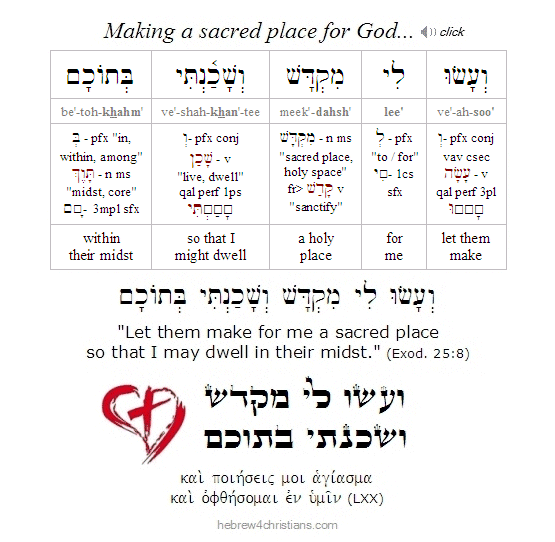 |
Some of the sages have said that the physical Tabernacle (and later, the Temple) was given as a concession to the frailty of man. After all, when the people had the opportunity to encounter God without a mediator at Sinai, they shrank back in terror. The Tabernacle, then, presented a form of "mediation" that provided symbols to help bring "heaven down to earth." The physical presence of the Tabernacle attempted to convey a sense of the immanence of God in the world. "Holy holy holy is the LORD God of hosts; the whole world is filled with His glory" (Isa. 6:3). The Scriptures plainly teach, however, that there is literally no "place" where God can physically dwell. When King Solomon dedicated the Bet Ha-Mikdash, the Temple in Jerusalem, he rhetorically prayed: "Will God indeed dwell on the earth? Behold, heaven and the highest heaven cannot contain you; how much less this house that I have built! (1 Kings 8:27). Likewise the prophet Jeremiah reports the word of the LORD: "Do I not fill heaven and earth?" (Jer. 23:24) Understood in light of this truth, it is clear that the Tabernacle was meant to symbolize a deeper, spiritual reality of the heart. As Yeshua said, "The Kingdom of God is within you (Luke 17:21).
The deepest message of the Mishkan, however, has to do with sacrificial love. The very reason for the sacrificial system was to draw us close to God. The sacrifice of an innocent animal for the sake of a sinner provided tangible hope that a holy and perfectly righteous God made a way for love and acceptance to prevail. Indeed the idea of "sacrifice" is korban (קרְבָּן), a word that means to draw near (karov) to God. The various sacrificial rituals were "examples" (ὑπόδειγματα) and "shadows" (σκιάς) of the heavenly reality that was given in the sacrifice of Yeshua, the Lamb of God (Heb. 8:5; 10:1). Because of Yeshua, God draws near to us so that we can draw near to Him. He is the ultimate "Korban" that brings us into eternal fellowship with God. Yeshua is the Father's "gift of the heart" given for you.
The love of God put the blood of his son the cross, just as the love of God provided the altar at the Tabernacle. Both in the sacrificial rites at the brazen altar and in their later fulfillment at the cross of Yeshua, the heart needs to trust in God's love. Yeshua stands at the door and knocks, ready to eat a "covenant ratification meal" with all who trust in Him (Rev. 3:20).
 |
<< Return
|
|















